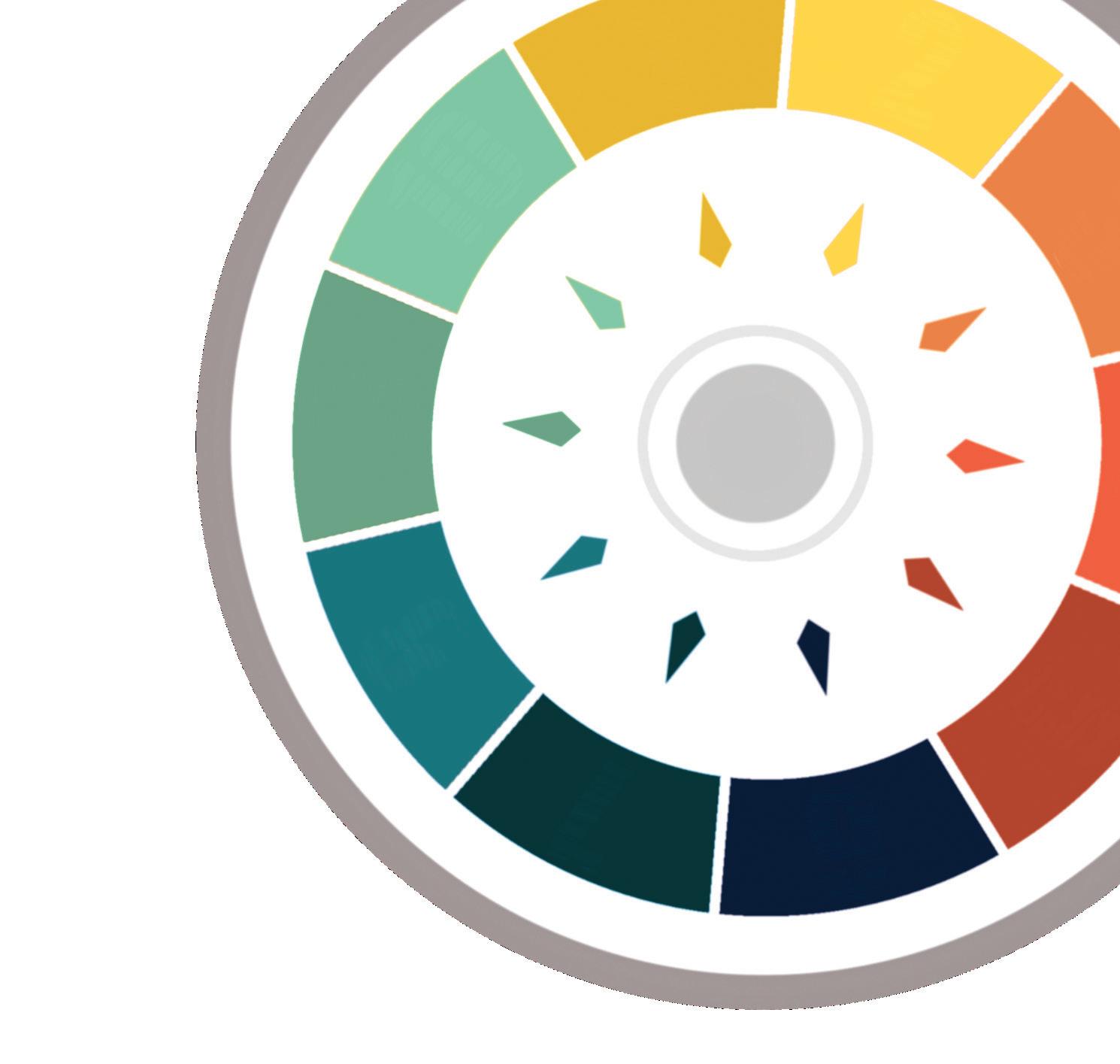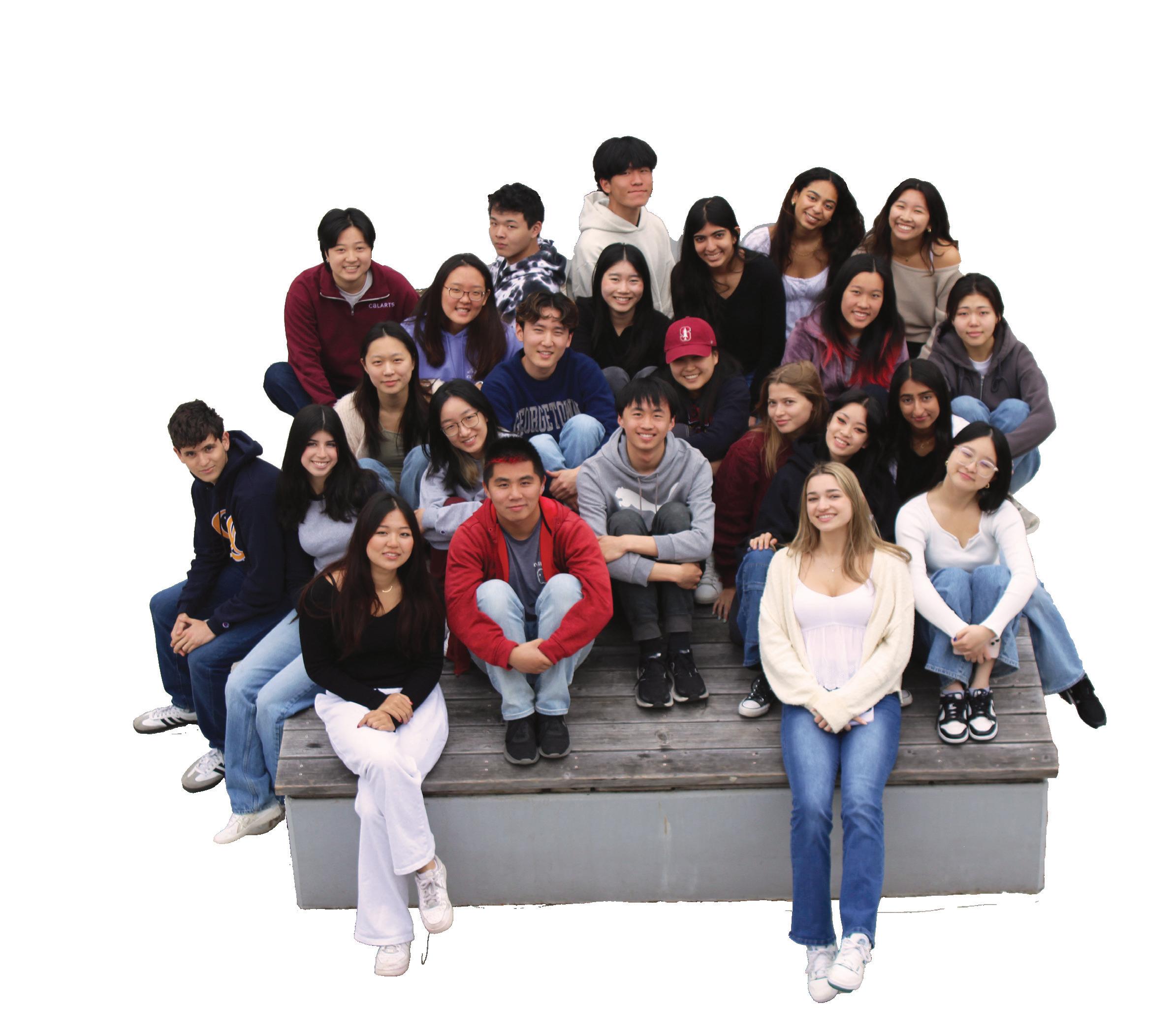THE ORACLE 2023
-24 PRESENTS

-24 PRESENTS




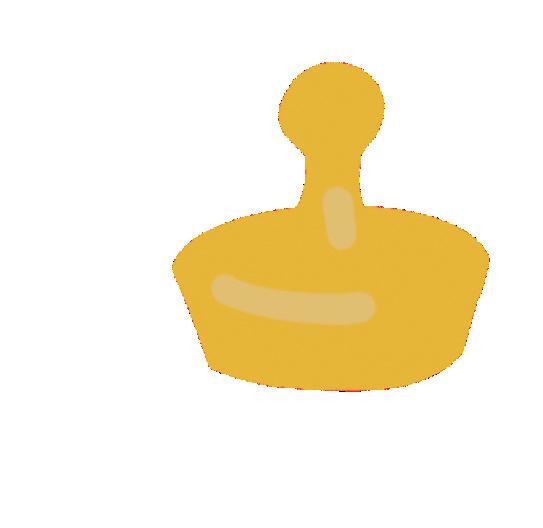


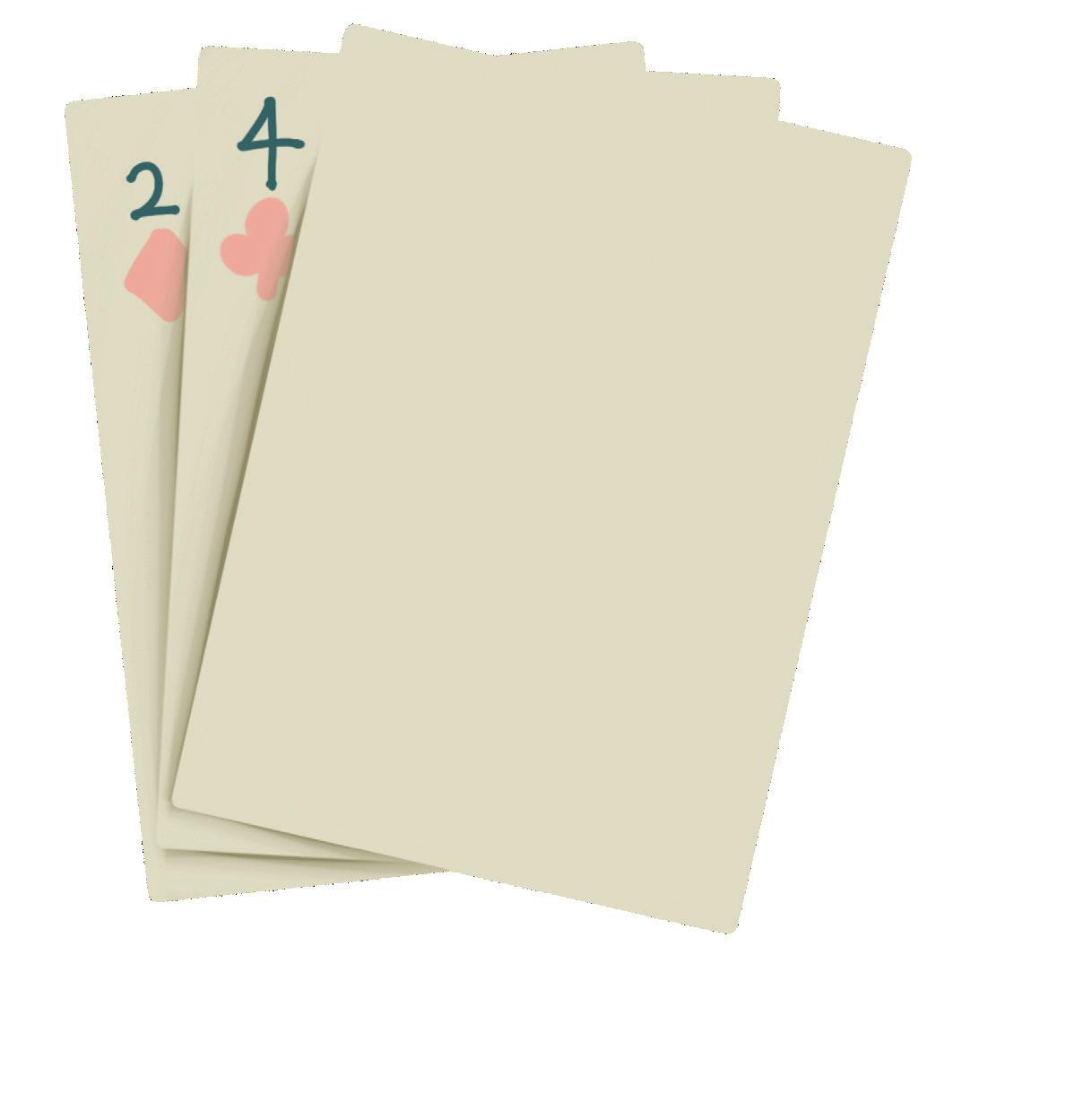

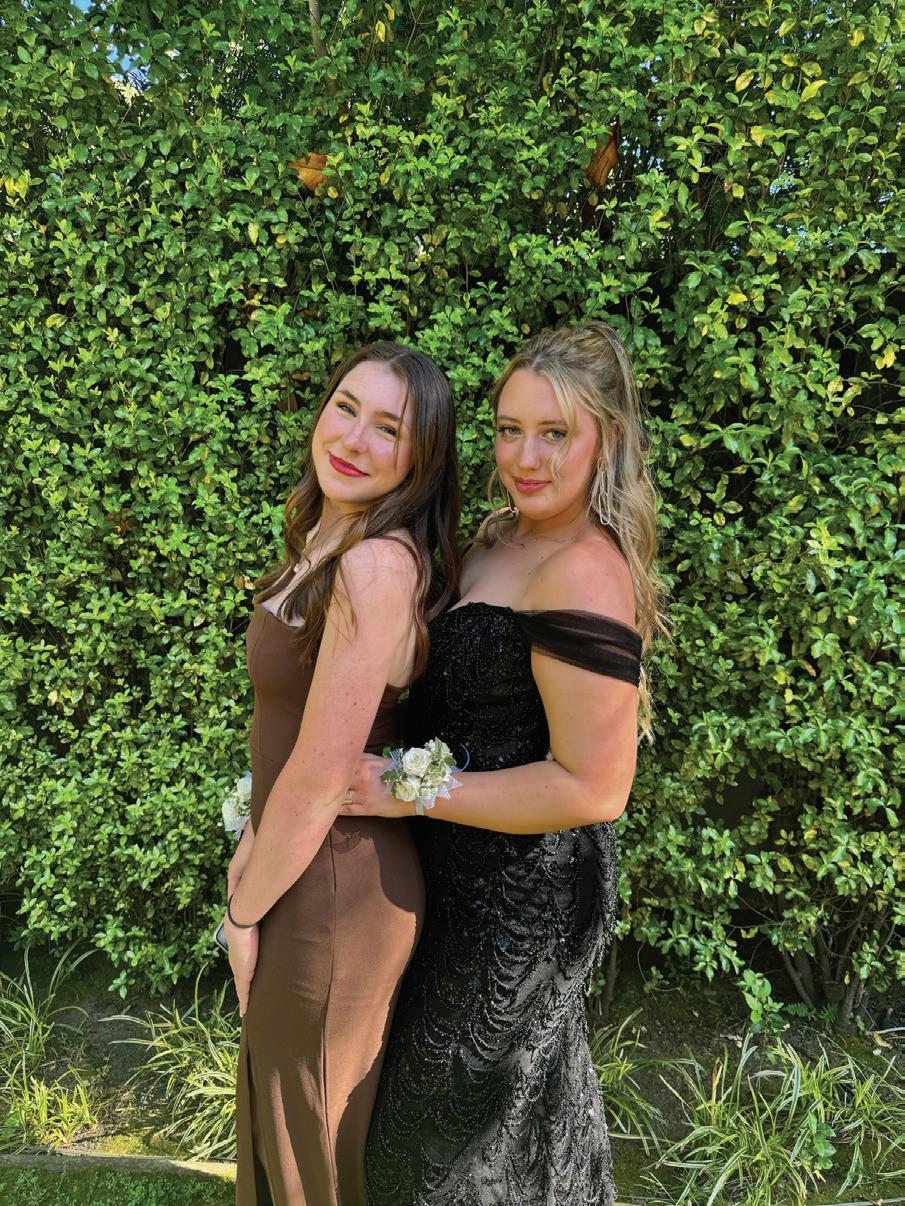



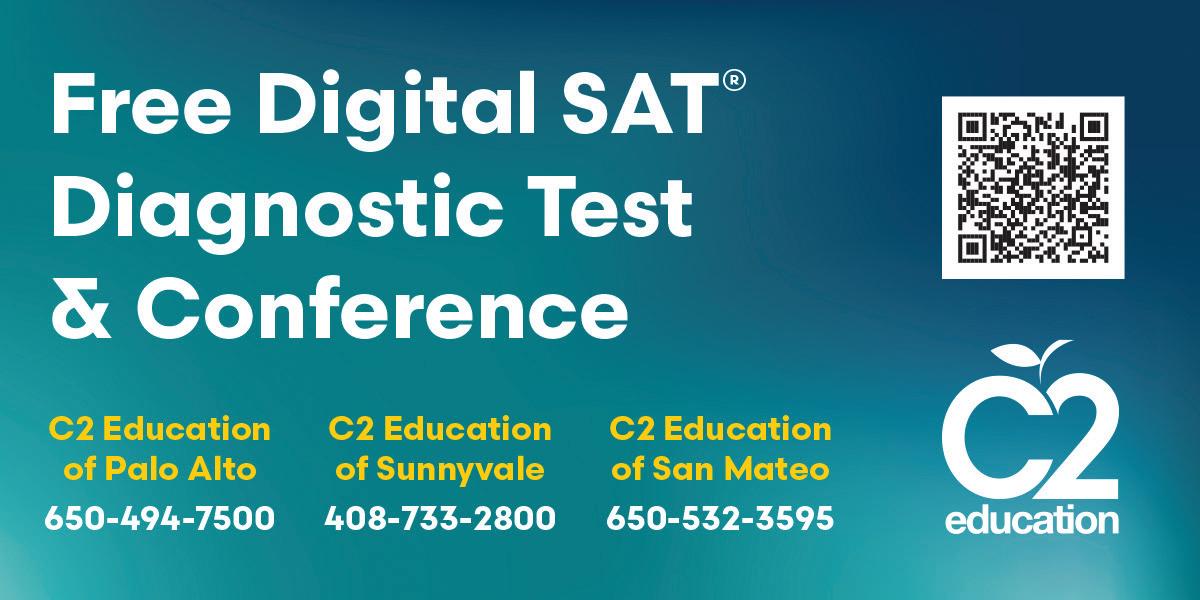


















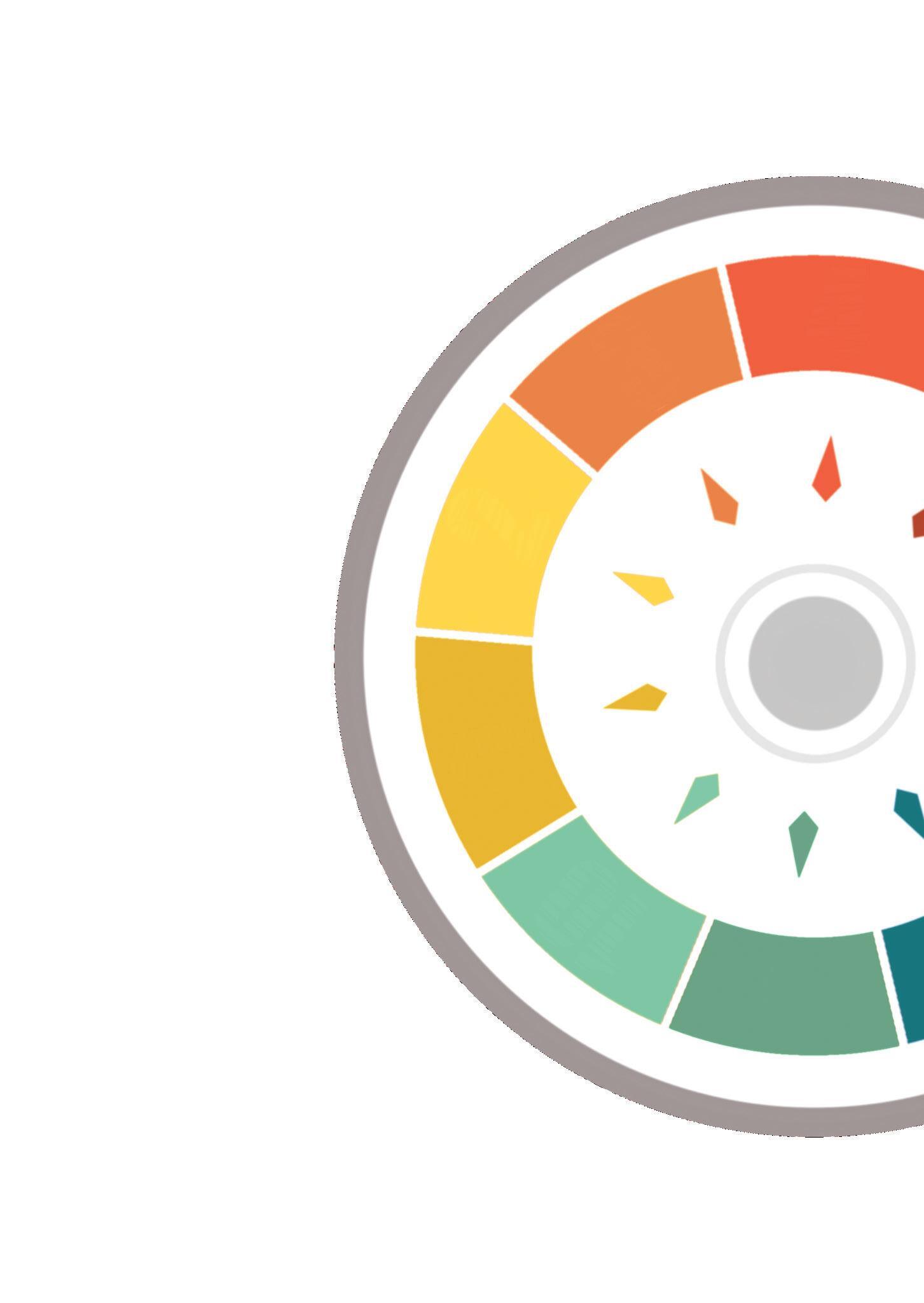



Diya Bose-Malakar
Kaitlyn Chen
Vivien Chen
Maddie Cheung
Victor Dang
Lise Desveaux
Irene Hong
Annabel Honigstein
Dan Honigstein
Sophia Hwangbo
Jeffrey Kang
Michelle Koo
Aarushi Kumar
Natalie Lam
Karis Lau
Katie LaWer
Chris Lee
Zoe Leontis
Amann Mahajan
Aeron Man
Benjamin Qian
Sophie Rong
Chinyoung Shao
Vivian Studdert
Safna Syed
Irene Tsen
Becca Wu
Ellie Yuan
Bryan Xiao
Fiona Xiong
Kristy Blackburn


Dear Class of 2024, We are enormous.
Let me clarify: We are expansive in the best way possible. This year, 26 out of The Oracle’s 41 in-class staff members are seniors. We’ve seen The Oracle switch from newsmagazine to newspaper and, collectively, written hundreds of stories. This phenomenon isn’t unique to the paper — it seems the Class of 2024 is inherently vivacious. Deprived of an in-person freshman year, we arrived on campus with tenacity; we stepped into new organizations with fervor, eager to make up lost time. We’ve watered seeds and watched them grow.
As we leave Gunn, then, we depart with kaleidoscopic memories. We’ve witnessed almost two whole construction sagas (parking lot and A- and B-buildings, in case anyone
was wondering), a slew of false alarms, evolving mentalhealth supports, and local and national racial reckonings. We’ll graduate this spring and dive into voting this fall, our high-school experience sandwiched by elections.
In other words, we are chosen. Not “chosen” in the fantasy or sci-f sense, but in a quieter way. We recognize the power of collaboration and collective storytelling, and we’ve forged our own paths.
But in the wacky game of life, we’ve made it just past the frst few steps: There’s still so much left for us to grow into, and that’s at once beautiful and terrifying. I can’t wait to see where the next spin takes us. —Amann Mahajan, EIC ‘23-’24





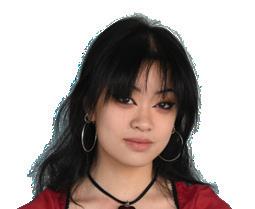






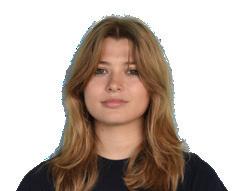




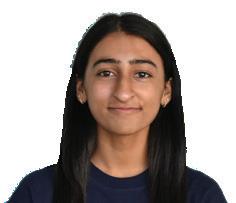



g g g g g g g g g g g g g g g g g g g g g g g g g g g g g g g g g g g g g g g g



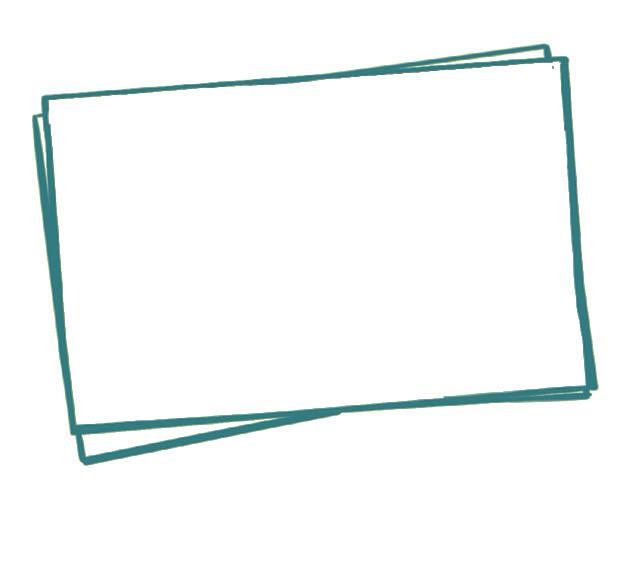
AMANN MAHAJAN EDITOR-IN-CHIEF 2.5 years

IRENE TSEN Eats chips chopstickswith MANAGINGEDITOR 2.5 years

Can’t post on Instagram without annotating frst MANAGING EDITOR 3 years
CHRIS LEE



Is an absolute Discord menace NEWS EDITOR 2 years
VICTOR DANG


Go-to excuse is, “sorry, I’m practicing viola”NEWSEDITOR 2.5 years
MICHELLE KOO






Has a PhD in Jane Austen Yappanomics FORUM EDITOR 1.5 years
ANNABEL HONIGSTEIN





Chronically overshares about her personal life FEATURESEDITOR 2years
DIYA BOSE-MALAKAR
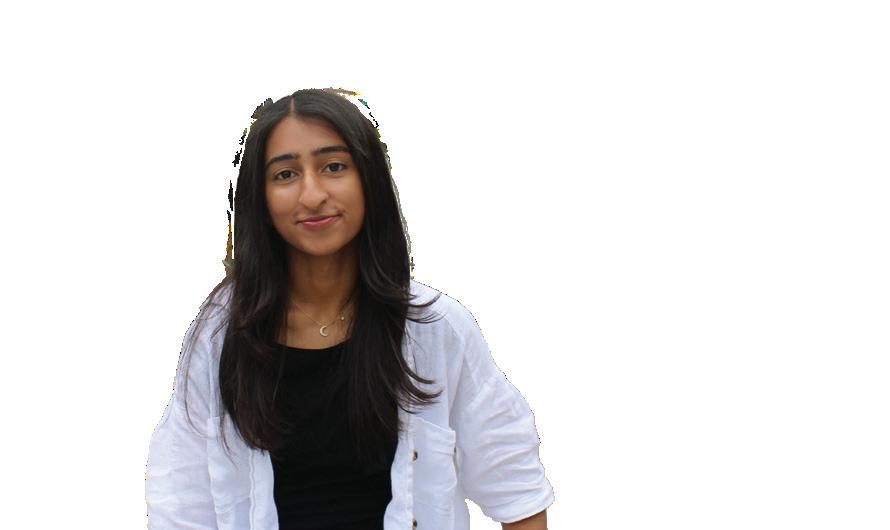
Can’t start a day without fnishing the NYT games FEATURES EDITOR 3.5 years
SAFINA SYED



Carries a Nintendo Switch on him 24/7 FORUMEDITOR 1.5 years
JEFFREY KANG


Never passes up the opportunity to nap CENTERFOLD EDITOR 2 years
MADDIE CHEUNG


LISE DESVEAUX CENTERFOLD EDITOR 3.5 years DAN HONIGSTEIN
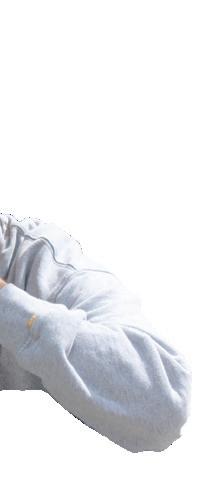

Couldn’t decide on a fun fact in time IN-DEPTH EDITOR 2 years


Never comes to school with a charged laptop
3.5 years KATIE LAWER Gets sick every 3-5 business days
BECCA WU


SPORTS EDITOR 3 years


Drills cubs on The Oracle like a military sergeant
SPORTSEDITOR 2.5 years
VIVIAN STUDDERT







Probably went to Starbucks today
LIFESTYLE EDITOR
2.5 years
KAITLYN CHEN




Skips school to watch sports LIFESTYLEEDITOR 2years
BRYAN XIAO

Will binge-watch a K-drama in two days WEBSITE EDITOR 2 years

Can’t get to class before 9:30 a.m.
LIFESTYLEEDITOR 1.5 years
VIVIEN CHEN



FIONA XIONG her boba drinks WEBSITE EDITOR 2 years
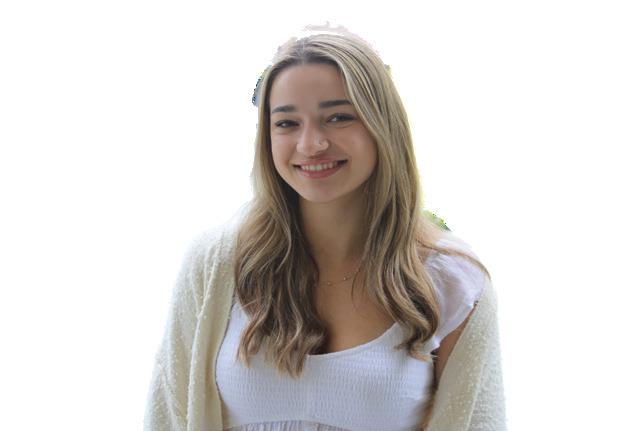

SOCIAL MEDIA EDITOR 1.5 years
ZOE LEONTIS


CHINYOUNG SHAO Kills any plant succulentsbesides PHOTOS EDITOR 4 years

YUAN Is probably out of the country SOCIAL MEDIA EDITOR 2.5 years


IRENE HONG Learned to use Adobe Illustrator a week ago GRAPHICSEDITOR 3.5 years

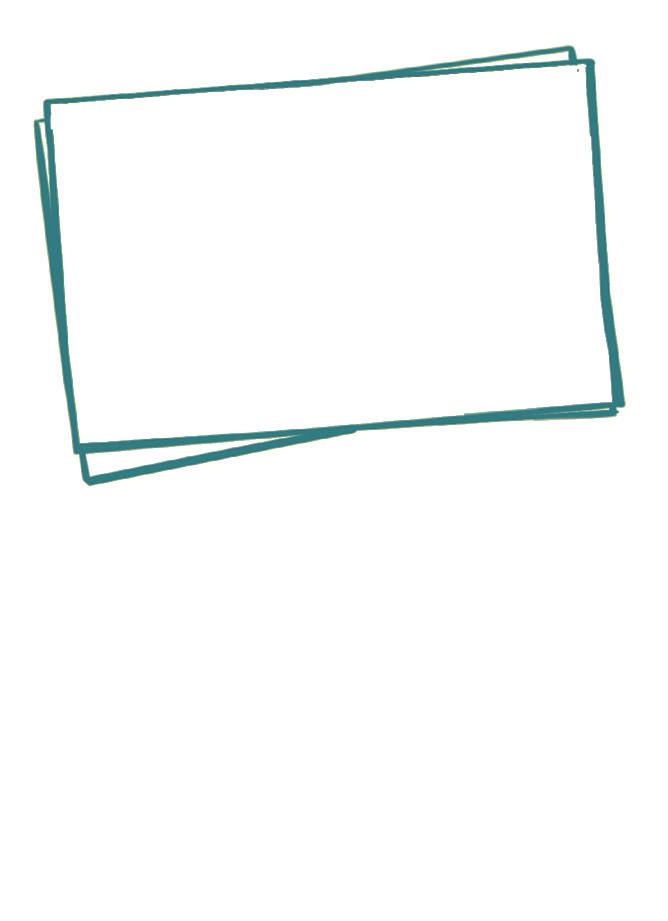

AERON MAN Is a retired Smash Bros. legend GRAPHICSARTIST 2 years





Can only draw faces and hands
GRAPHICS ARTIST
1 year
KARIS LAU


Canrecognizeevery 5SOSsonginstantly
AARUSHI KUMAR GRAPHICS ARTIST 1.5years



Will only text you back between 2 and 5 a.m. PHOTOGRAPHER 2 years
BEN QIAN

Has grapheme-color synesthesia GRAPHICSARTIST 1.5 years
SOPHIE RONG


Speedruns graphics the day before they’re due GRAPHICSARTIST 3.5 years
NATALIE LAM



Has a black belt in sarcasm and hates semicolons. ADVISER
20 years
KGB
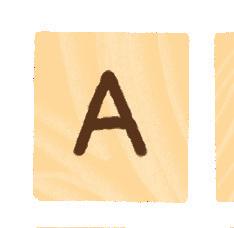
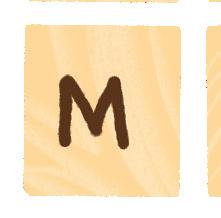








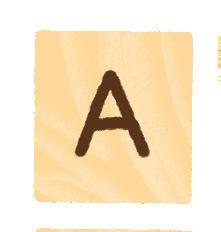


They say senior year is the best year for confessions (after all, who’s going to chase you down afterward? An ill-intentioned sibling? A teacher?), and in that spirit, here’s mine: I was — and, at least marginally, still am — a Stephen King fan.
All teenagers have their indulgences, and beginning in ninth grade, mine were “Misery,” “Pet Sematary” (no, it’s not misspelled), “The Shining” and all the rest. King’s books aren’t trashy by any means — far be it from me to insult the king of horror — but they were assuredly outside of my comfort zone. I’m by no means a thrill-seeker or a gore-lover, and I’ve often wondered what drove me to read about a psychotic clown in Maine, or a haunted hotel in the Colorado Rockies.
What I settled on was this: King’s books were perfect for me not because they were bloody, but because they provided a childish refuge. In ninth and 10th grade, I struggled to face the fact that I, and everyone around me, was evolving, perhaps beyond recognition. When I looked around me, I saw my friends eager to move on, grow up and be independent, and King’s books gave me space to cling to the familiar. His kid protagonists face unimaginable atrocities, but the solution is, in King’s words, to “remember the simplest thing of all — how it is to be children, secure in belief and thus afraid of the dark.” Defeating evil isn’t a matter of being the smartest or the most successful; rather, it’s an exercise in belief, maybe even in the suspension of disbelief.
So I took comfort in belief. Happy in my own sphere of comfort, I stuck with what I knew and avoided what I didn’t: driving, spending time with new people, trying new activities. I would go to school, go to basketball, come home, play

piano, do homework, repeat. Monotonous, but predictable; static, but dependable.
Beginning in junior year, though, I started to realize that shying away from change was not going to work. It was one thing to look at my elementary- and middle-school years with nostalgia, and another to stay mired in them, and I was tending toward the latter. And so I tried something new: I exchanged King for new authors, traded basketball for journalism and found new friends to add to the old. I felt a pit of anxiety in my stomach every time I pivoted, but each small step felt like a battle won against my own fear of change.
It was only after I had begun to let go a little that I realized I had misunderstood King’s work. Being “secure in belief” didn’t mean taking refuge in it — it meant harnessing that childish awe, curiosity and empathy into adulthood. Growing up doesn’t entail abandoning childhood, but it also doesn’t mean regressing into it. My friends weren’t leaving behind their old exploits, but changing them into something new.
A few weeks ago, I picked up “It” from my bookshelf and — ignoring the clown’s garish smile on the front cover thumbed through it again. The 1,100-page tome is, in the end, an ode to childhood, but it’s also a story of how we heal from and remake our childhoods as adults. After all, we are all still growing into our own stories, expanding and unfurling. Who knows what comes next?











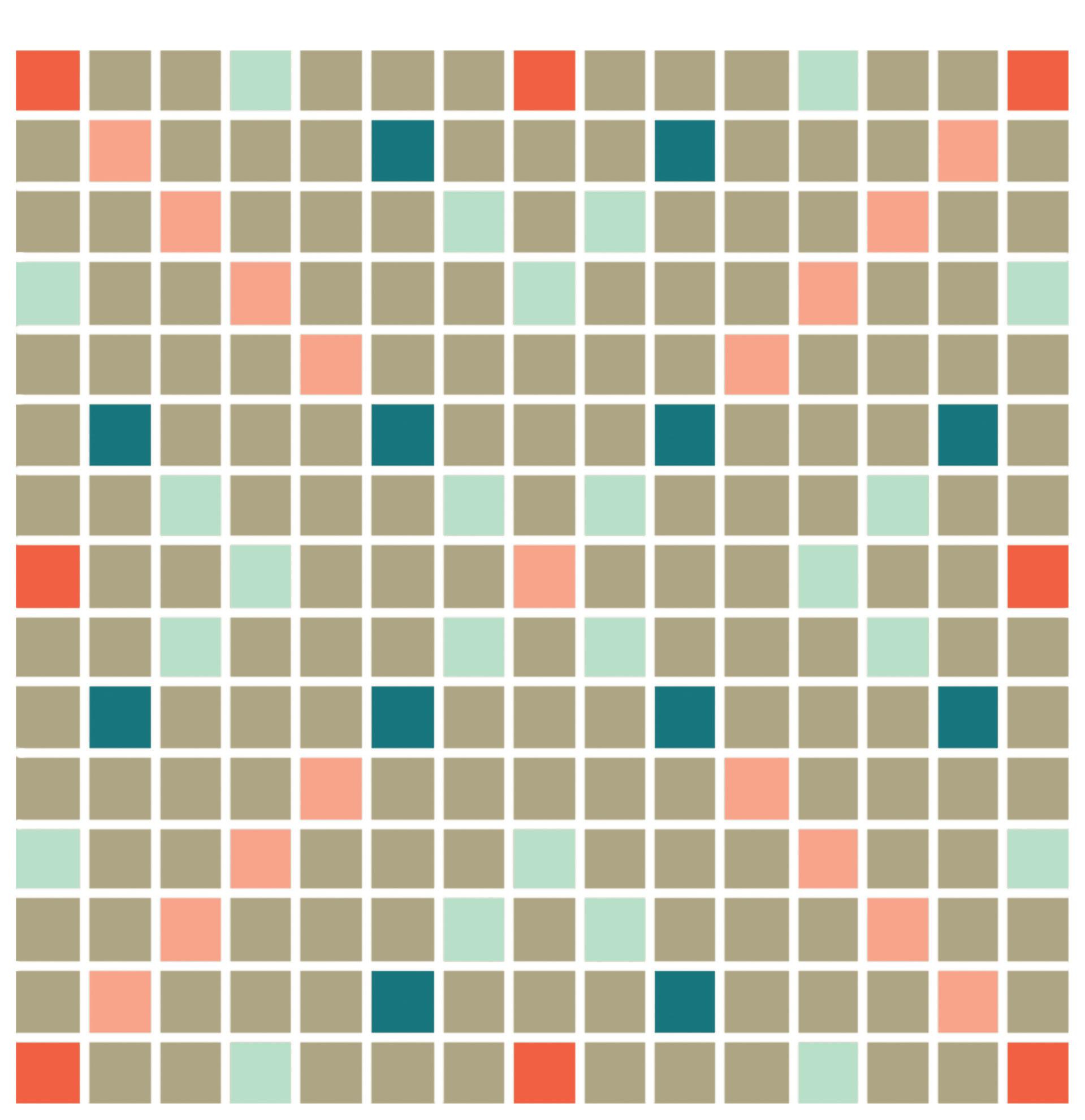
First to go were things: the cheap charm bracelet I’d bought in Okinawa seven years ago, the Kinder-egg toy, the expired library card from when I lived in Fullerton, the books I read once and vowed never to again. Paging through J.D. Salinger’s “Catcher in the Rye,” I felt the same frustration and unmet expectations that led me
I set the book in the “donate” pile, ready to rid it from my life.
only what holds value for me — in eighth grade focused on material things. I tackled my clutter because I wanted to rid myself of the weight of items that bore the burden of a past I no longer growth, an invitation to newness.
I won’t lie and say it was easy. I value economy, and it felt supremely wasteful to throw away all these things that were still “good to use.” These items, moreover, were rife with my personal history. I thought I could not bear to part with them.
So I negotiated with the selves I had been: the Irene who felt guilty playing with toys because she thought she needed to grow up, the Irene who could not stand Holden’s teen angst, the Irene who was not ready to leave her life in SoCal. In resolving tensions between my past and future selves, I learned about who I was and who I wanted a necessary complement to work; I empathized more with Holden’s directionlessness. I came to terms with

my past by removing things from my life only after conscious evaluation; thus I shaped my present and took control of my future.
Much of my present has been formed this way, as I’ve extended minimalism to all areas of my life. One of the hardest decisions I made in high school was quitting competition karate sophomore year, which I’d invested hours a day into years prior. I loved the friends I trained with, the excitement of learning a new “kata,” the work that went into perfecting the basics. I felt that quitting karate would render the effort I’d put in meaningless. I feared losing the friends I had made, a slow moving apart that would return us to strangers. At the same time, I yearned to write and to grow in my writing-related pursuits in junior year. I chose this growth. And when I gave up karate, it was a subtraction that enriched my life.
year. I trimmed down my clothes to a capsule wardrobe, a small collection of pieces that work composition and reading Foothill class a few months ago to spend more time with friends

is in a sense a “yes”: to more time with friends and family, to more mental bandwidth, to more energy on pursuits that matter to me.
Minimalism was how I found balance in high school, a way of asserting control when otherwise I felt in danger of drowning. It became a way to dissect my life, from the things I kept to the commitments I accepted to the way I spent my time. In the chaos of each day, I reached for simplicity. The sum is lightness and joy.










Sixty-fve percent of Americans believe they are above average in intelligence, according to a 2018 National Institute of Health paper led by researcher Patrick Heck. While this manifestation of our self-assuredness is amusing, the statistic contains more than an ounce of truth. No one — especially at Gunn — enjoys viewing themselves as below average or even just “average,” so we shower ourselves with praise, convinced that we’ve reached the summit while everyone else is still climbing the mountain.
As much as I would love to say that I had a profound reckoning early on, I didn’t. Instead, I took so much pride in my own accomplishments — even trivial ones. But while skipping class to cram for same-day APUSH quizzes and physics tests, I found myself thinking about the people whose work ethics I could only dream of. Whenever I snooped through The Oracle’s section folders after fnal drafts were due, fellow staffers’ perfect, succinct prose gave me chills of satisfaction. And when I was stressed, friends with overfowing empathy, thoughtfulness and understanding — which I don’t know if I’ll ever fully achieve — met me where I was.
Funnily enough, despite my initial effort to excel beyond others, I’ve felt more and more “average” the longer I’ve been at Gunn. But this feeling of mediocrity hasn’t left me mired in self-pity. Instead, by devoting less of my energy toward making myself the king of the mountain, I’ve come to recognize the profound impact of others’ presence on me and how much more I can learn from their intelligence, generosity and resilience.
To be clear, this journey was something that I essentially stumbled into. As a freshman who took Beginning Journalism because I thought it

was broadcast (sorry, KGB), I defnitely did not know I’d be writing this refection in the school newspaper four years later. But here I am as an 18 year old on the cusp of adulthood, excited to continue meeting people that empower me to grow during the next stage of life: college.
Ultimately, “average” — in the context of life and growth — is relative. Even if you could somehow measure the exact average of everyone’s intelligence or other desired quality at a certain instant in time, that average changes the very next second.
As humans, we’re meant to evolve and be fuid. Thus, delineating those above average and those below ends up being little more than a futile attempt to feed our egos — especially at a school community that has so much more to offer.
You’re the average of the fve people you spend the most time with (or at least, that’s what motivational speaker Jim Rohn thinks). Make those fve people really count, and see how they can help you continue climbing to new peaks and become the best version of yourself. At the same time, see how you can be a role model for others. When we’re simultaneously learning from those we deem “above average” and being that exemplar for others, maybe 65% of us can be “above average” after all.






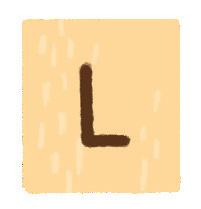



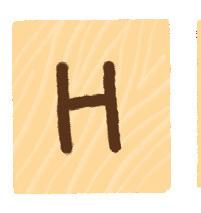



“Now, where you sit in the cafeteria is crucial,” Janis Ian tells protagonist Cady Heron in “Mean Girls.” The camera zooms in on Ian’s meticulously hand-drawn map detailing the cliques of North Shore High School, from the “preps” and “JV jocks” to the “girls who eat their feelings” and “desperate wannabes.” As a highly impressionable middle-schooler watching the flm for the frst time, there were two cliques that particularly stood out to me: the “Asian nerds,” clad in striped shirts and glasses, and the “cool Asians” at the next table, distinguished by their highlighted hair, piercings and crop tops.
For the better part of my teenage years, I believed I had to choose between these two groups. Swayed by the stereotypes of ’90s and early 2000s media, I hated being called a “nerd,” believing that equated to social ineptitude, physical weakness, laughably overbearing intellect and, overall, undesirability. I feared trying too hard in school, sounding too smart, thinking that’d inevitably cost me a seat at the “cool kids” table.
Thankfully, however, I never had to step foot in the segregated cafeteria of North Shore High. Instead, at Gunn, I found a sense of belonging through my nerdiness. In a place where — in the words of Dr. Mellows — “everyone is a genius,” I’ve met so many people who seriously just love what they do and will take any opportunity to learn more. As I watched my friends, peers and teachers “geek
out” over everything from music to biology to World War II, I realized that intellectual curiosity is truly one of the most admirable traits in this day and age.
Perhaps the most refreshing part, I think, about being surrounded by nerds is how unashamedly passionate they are about their interests, no matter how niche they might be. Living in the great technological hub that is Silicon Valley, I always felt pressured to pursue STEM-related subjects despite growing up with a certain fondness for art. But joining The Oracle in my sophomore year of high school, I found a whole community of people who love to write and create, and in the presence of their fascination, I was able to cultivate my own.


Moreover, Gunn taught me to challenge the traditional image of the painfully awkward, scrawny nerd who stays in on weekends to study and, despite all their efforts, cannot seem to win over the girl or guy of their dreams. I realized that you can, in fact, have a great circle of friends, play varsity sports, party on the weekends and still be a nerd. Nerds’ authenticity, enthusiasm and curiosity shaped a whole new meaning of the term in my head, and I began to take the word as a compliment instead of something to be ashamed of.
So, rather than fearing social rejection, I invite you to embrace your inner nerd. Cars, cooking, coding or crosswords — whatever it may be, fnd something that excites you, that could talk for hours on end about, and commit to learning as much as you can about it. As Jeopardy! champion Ken Jennings puts it: “Trivia is mainstream. ‘Nerd’ is the new ‘cool.’”





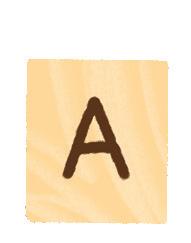
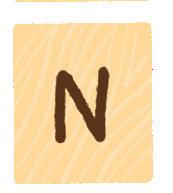





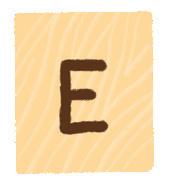



Growing up, I was a grade-A pushover. I would’ve rather died than told a barista they messed up my order, and if I got hit by a car, I’d probably apologize. My greatest enemies? The
reason I was so afraid to disagree was because of disagreement came up in school, we were handed sentence structures and rules to follow. Those tools may have been helpful then, but unsurprisingly, “I understand your point, but respectfully disagree” has less success in practical world of middle-school Vivian) lived on two extremes. It was either the extravagant, messy it was an “I’ll-not-text-you-for-a-day-and-see-ifenough to do the texting stalemate. So, I happily avoided C&C and enjoyed the company of my
friends was sliced to almost nothing. A “friend” was now someone I texted occasionally with loose post-COVID-19 plans, or for help with
the world, but my solitude mainly changed me in one grand way: It made me more self-centered. Put that simply, this shift in my character was the change I needed to be more in touch with myself. Being a labeled cube on a screen that people perceived based on the couple of words I said a day was dehumanizing. The people-pleasing side of me was empty with no people to please. I had to face the realization
I had made my feet small so as not to step on any toes, and my body narrow so as to stay everyone had to do what I had done my whole
I needed to matter, to be my own person. And that meant embracing my old enemies, C&C.
in touch with my wants. I didn’t want my math teacher to pronounce my name “Viv-anne” anymore. I didn’t want that friend to continue to
feed and play with his cats twice a day, I was Some battles were bigger than others, but
almost nonexistent, but when I was met with it, I for myself was worth being uncomfortable.
Disagreement should be celebrated. C&C are messy but necessary reminders of how different we all are. So no, I am not encouraging people to become egotistical, but I am advocating for assertion. It isn’t healthy to believe that the world revolves around you, but it’s just as detrimental to believe you have no place in it.
So the next time someone
differently from the status quo, don’t shy away from what’s right in front of
Disagree.















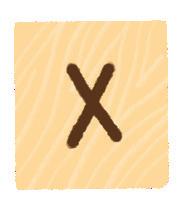

— “If your friend jumped off a bridge, would you too?” — I always said no. I responded mom wanted to hear and partly because I truly for others. And though I certainly wouldn’t die for anyone, I can now say that, yes, I am ready to do some pretty stupid things for my friends. Moving every two to three years growing up, I became a master at building and tearing down relationships. Friends would only stay friends until the dreaded time came — when leaving the school gates didn’t end with a “see you next year” but with hugs and lots of crying. Eventually, though, when this became routine, the tears stopped, and acceptance led to a more muted reaction. I started rationing my love, only
to convince myself that I was happy on my own, unwilling to confront the possibility of caring for people and then losing them. That mentality, starting as a defense mechanism, slowly became an integral part of my interactions with
around my living room table and were laughing to the point of almost peeing ourselves. At that moment, I realized that not once that day had
mouth open, say aloud all the things I was so used to saying in my head and be completely honest about my struggles. Each time something
people I wanted to call when I was feeling sad. I was always so used to dealing with my emotions alone — my favorite two words had been “I’m
it meant to have people I wanted to count on.
Of course, one day, I am probably going to lose these friends. Maybe it’s going to be a month into college when I realize, scrolling through
and starting yet another chapter of our lives.

said. I replayed conversations in my head, wondering if I should have said something differently. I cannot pinpoint when I started getting out of my head, but I do remember one night in junior year when my friends and I were

together now, but parting doesn’t seem scary anymore.
new lives, but that doesn’t mean we have to tear down our old ones. This one has become too precious to me for me to tear down. Instead, I can build on top of what already exists, continuously adding new people, places and relationships. I can’t say “see you next year” anymore, but I can
that it will happen because I am willing to do that for them. I am willing to jump off that bridge and go out on a limb for them, even if there’s a possibility that I’ll get hurt.





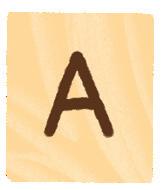



In Chinese, there’s a phrase: “as big as the sky.” It means that something is so important and will leave such a lasting impact on your life, it’s as though it’s as big as the sky. Except, my mom would always tell me when she found me devastated after tragedy, “Nothing is that big.”
Bombing a math test isn’t as big as the sky, a bad breakup isn’t as big as the sky and, by Lord, getting rejected from college is not as big as the sky.
But sometimes, when things go wrong, it’s like the weight of the universe has fallen on you. Maybe it’s because of my subpar coping mechanisms, but I have never felt normal about any rejection. Still, my mom’s voice would ring in my head — “nothing is as big as the sky” — and would realize: I did what I could. I can’t go back and change anything, but I put everything I had into everything I did, and I have no regrets. That’s as big as the sky. That’s everything.
My time in high school has been dotted with struggles: I was hospitalized my freshman year, then again my junior year, and almost failed a good chunk of my classes. I lost some people close to me, and possibly worst of all, I dated a SoundCloud rapper. There were so many things I couldn’t control, despite my best efforts — things that I clawed at and cried about. It’s not in my nature to be nonchalant. I wrote the most embarrassing emails to teachers and professors begging for extensions, exceptions, recommendations; I tried manifesting, with pen and paper, to pass classes; I stalked my exboyfriends from burner Instagram accounts.
The grief and trauma these experiences
the growth and understanding I’ve gained as a result. I’ve learned that what happens after I put

my heart (and dignity) on the line aren’t up to me. The second you press send — whether it be
winded text — you’re leaving everything else up to chance. And, yes, you’ll be hurt sometimes. But it hurts more to know that you missed out on something you could’ve had if you just tried a little harder.
How, then, do we live life minimizing these wishes of doing more, doing better? By doing everything we can, all the time. We work hard to achieve results and then dismiss that work when the results are unsatisfactory — studying for a test only to fail, falling in love with someone who will never love you back. But if you look back on the process — how hard you worked and the passion you put in — the results are nowhere near as big as the sky.
By all means, celebrate your accomplishments — but celebrate your efforts as well. The only way to live with no regrets is to do it all, to the best of your ability. Doing your best is hard, and doing it all the time is harder. The times when doing your best results in disappointment or heartbreak are the hardest. But isn’t it better to try and fail, to love and lose, than to never try and never love? Then, you can look back knowing that you did everything in your power, and there is nothing to regret.
No results are as big as the sky. But your efforts, your heart, your soul — those are as big as the universe.
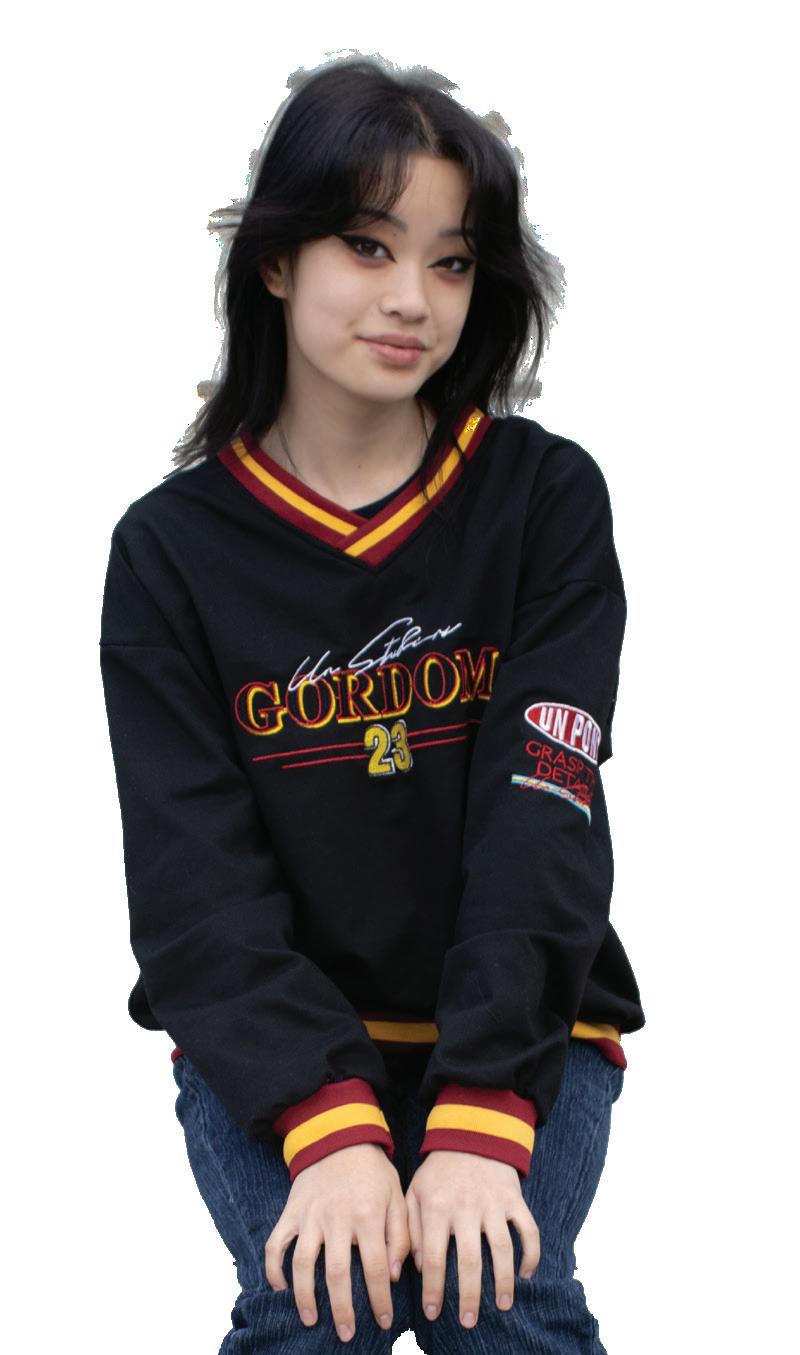



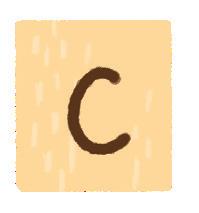








In the spring of my junior year, I applied for a full-time NASA engineering summer internship
the next two months, I daydreamed nonstop about designing satellites and studying ocean
I remember reading that rejection letter the Placement Calculus, and for the following week, I felt devastated and hopeless. If I couldn’t live out my fantasies being a NASA intern, then what really was the point of school, of friends, of anything? In hindsight, this notion makes absolutely no sense, but in the moment, my hopes and dreams had just been mercilessly ground to dust. I spent the next month sulking, cringing whenever my friends mentioned any sort of summer program that they were attending and imagining all sorts of wonderful things that I was missing out on as a reject.
While hammering out my plans for the summer on a calendar, I noticed that the NASA internship would have occurred at the same time as an important diving meet. As an athlete dedicated to my sport, I felt some small relief at not being forced to decide between the two. And even closer to the end of the school year, I was lucky enough to be offered a summer internship at a local robotics company alongside two of my hours and — even better — free snacks. It wasn’t as shiny
as getting to show off a NASA badge on my certainly better than nothing.
By the end of that summer, not only did I have the time of my life at that robotics internship, but I also ended up qualifying for multiple highlevel diving competitions. Had I been selected for and gone on that NASA internship, I would undoubtedly never have been able to do either of those things, and likely would have had nowhere near as much fun.
My experience that summer helped me realize that no matter what sort of disappointment or setbacks I experienced, there was always a path forward as long as I kept looking for one. Over the course of my subsequent senior year, as I was rejected by more programs, bombed tests and suffered injuries that temporarily put me out of my athletic training, I kept in mind the valuable lesson I learned and continued moving forward to the best of my ability.

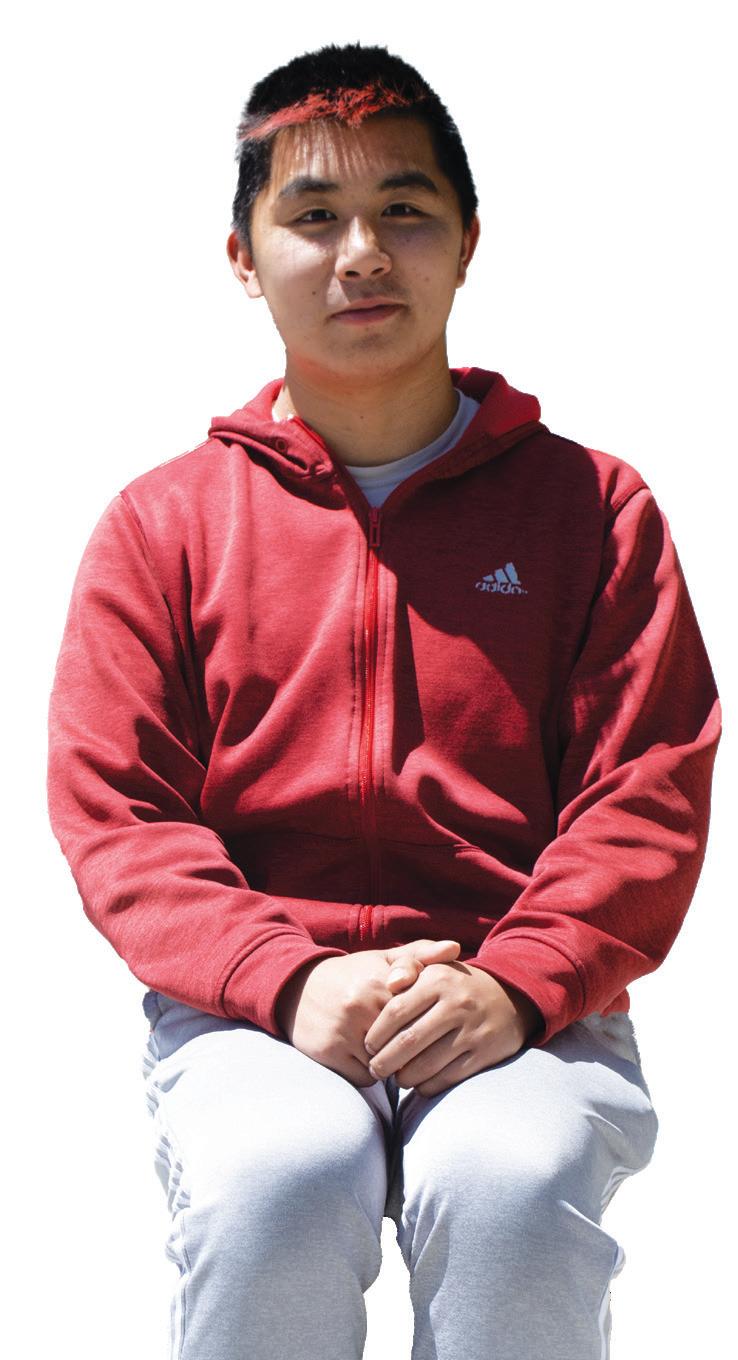
I’m not here to tell you to just “look on the bright side” or “think of the glass as half full” in the face of failure. Instead, I want you to know that you shouldn’t stay down. No matter how hard you get hit, the silver lining is always going to be right around the corner. It might be just out of sight, and you might have to drag yourself
but I can promise you that it’s there.
In society today and perhaps especially at Gunn, it’s too common to focus excessively on success and synonymize failure with defeat. It’s true that failure can lead to defeat, but only when you don’t get back to your feet, readjust round.






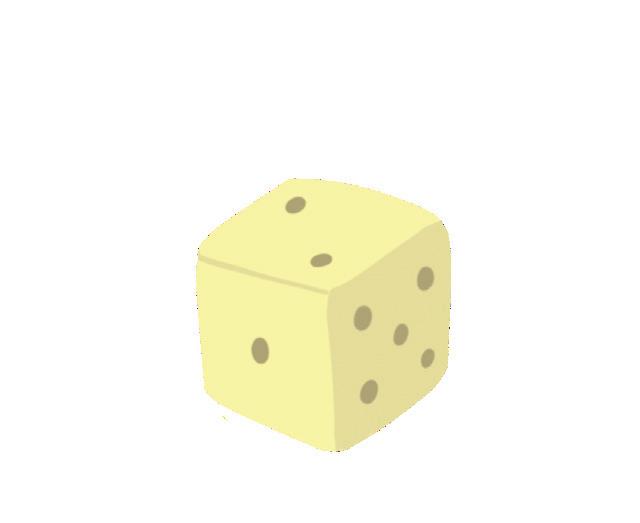






Impact: It’s what Deena Abu-Dayeh hopes to pursue as part of Northeastern’s electrical engineering program. Despite the challenges of pursuing a STEM major as a woman of color, her resilience and love for physics propelled her decision.
Abu-Dayeh found her path to engineering through her parents’ and older sister’s encouragement.
“I was always interested in Legos and all these circuit kits that my parents would buy me, so I knew I wanted to do something (in) engineering,” AbuDayeh said. “Then, my dad kind of put me on the path because he knew that I like to do all these things.”

Growing up in a family of badminton players, Patrick Chi has pursued badminton since childhood. Today, Chi plays on Gunn’s badminton team — and has for all four years of high school — where he participates in all events: singles, doubles and mixed. He also trains year-round at Elite Badminton Center.
Chi’s badminton journey hasn’t always been smooth. The sport began to lose its luster in middle school as competition and pressure rose, up to the point where he almost wanted to quit. Eventually, though, he found his rhythm.
“Before getting to high school, the junior tournaments are very competi tive, and you start to question your self,” he said. “But (I learned) to trust in my own abilities.”
Badminton has helped Chi grow beyond increased physi cal skill and endurance, as com peting with a team has taught him collaboration.
“I’ve learned how to communicate and inter act with my peers, and listen to their unique perspectives,” he said. “(In badmin
ences so I can use them in the future.”
From her experiences, Abu-Dayeh, who is president of Gunn’s Women in STEM Club, wanted to help other girls she reached out to other girls to help career.
“It takes a lot of time and energy to decide what you want to do in your life, and having no clear path is really stressful,” she said. “I just wanted to guide people, especially girls in STEM in high school.”
Over the past few years, AbuDayeh has overcome loneliness in male-dominated STEM classes and thrived despite the gender gap.
“I’ve learned a lot from (the struggles) that I can just kind of go past them,” she said. “They affect me, but they don’t affect me as much as they did (in the past). I plan on learning from these challenges and experi-
ton,) you have to understand your partner better and develop a strategy that suits both of your strengths.”
Chi plans to continue playing badminton on the University of California, Berkeley, team. While he’s been able to balance badminton and academics thus far, he believes college will prove to be a greater challenge. Still, even if it’s through casual play, Chi looks forward to diving deeper into one of his favorite aspects of the sport: community.
“I think it will be less rigorous because I will focus on forming connections instead of competing for personal glory,” he said. “(I’m excited to) meet new people on the team from diverse studies, locations and inter-

At Berkeley, Chi plans to major in data science, an interest he’s fostered through computer science classes at Gunn.
“I believe data science is the future and opens up many new possibilities,” he said.
—Written by Vivien ChenWith the start of her college career, Abu-Dayeh is excited to use her experiences and skill set to continue fostering community.
“I’ll apply the skills that I’ve made while in high school and being a woman in STEM to my jobs, and create that support system and create that community no matter where I go,” she said.
—Written by Lise Desveaux

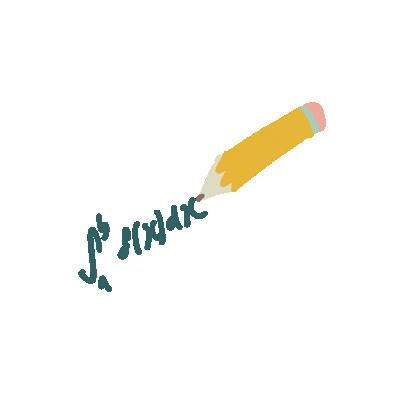

Theo Fong can often be found making music in his room, surrounded by instruments and immersed in compositions.
Though his principal instrument is the saxophone — he plays in a saxophone quartet as well as Gunn’s Wind and Jazz ensembles — he learned the electric guitar in his freshman year. Then, by learning electric bass and using his previous background in piano, he began using his songs — mainly covers that he posts on his music Instagram account, @tk.songs.
Fong has been inspired by online music creators, namely multi-instrumentalist Luna Lee and YouTuber Carlos Eiene.
“When I saw all these different people posting their creations online, I thought, ‘Why can’t I do that?’” Fong said. “It’s pretty fun to put yourself out there and share your creations with the world.”
Fong believes that the ability to produce music is just as paramount as having strong instrumentation skills.
“Being able to play instruments and melodies is half the battle,” he said. “You have to make everything sound good on the device it’s coming out of, which takes a lot of tweaking.” -
Though they are inseparable today,
Roger Fan and Steve Zhang met.
“I met him at a math competition in middle school,” Fan said. “You should have seen the pictures of him back then. You would have thought, ‘Oh, yeah, this guy’s a nerd.’”
During the COVID-19 pandemic, however, Fan and Zhang began to talk online, as they were part of the same math competitions.
“We did some competitions together for Gunn Math Circle because it was being run by other people,” Fan said. “We just tagged on for competitions. And then in sophomore year, we talked more. We did a lot of random math things together.”
Fan and Zhang’s overlapping interests and activities helped forge their friendship. Today, the two serve as co-presidents of Gunn Math Circle Club, organizing the Gunn Math Competition, writing problems to select competition team members and hosting weekly lunch meetings.
“One thing we do for Math Circle is just run a bunch of events,” Fan said. “We run a math camp over the summer for middle-schoolers to get people into math. We ran the Gunn Math Competition too, and that was a lot of work and also a lot of fun.”
effective and rewarding.
“As a person, Roger is really ambitious and on top of things all the time,” Zhang said. “So it’s nice to have a partner like that who can sort of keep me in check.”
Fan and Zhang continue to spend time with each other, even outside of math-related activities.
“We do so much stuff together, it’s impossible for us to not be friends,” Fan said. “We sometimes do homework together, and sometimes we just chill.”

notoriety on campus as an additional bonus.
“We’re like a power couple, a power dynamic,” Fan said. “That’s us.”
—Written by Victor Dangory knowledge and improvisation skills incredibly helpful for arranging songs. According to Fong, only 15% to 20% of the music he creates makes it out to social media. The rest, he said, is personal playing that varies greatly in genre, re-
“I like listening to everything,” Fong said. “My philosophy is that all music is good.”
In addition to posting music online more frequently, Fong plans on incorporating other people into his music. Even thus far however, Fong’s music has
me break out of my shell because I’m normally a pretty introverted person,” he said. “If you really enjoy something, you should just do it. What’s the worst that can happen?”

Next year, Fong will be attending the University of California, Berkeley, where he plans to pursue music alongside another undecided major.
—Written by Dan Honigstein



Caitlin Ginn has enjoyed cooking for as long as she can remember.
“My parents would give me a cutting
veggies my entire childhood,” she said.
Ginn’s culinary interests grew in middle school, when she began teaching kids in summer cooking camps. At the same time, she gained professional training, learning with a family friend at culinary school and joining French pastry lessons on Zoom.
It was around this time when Ginn thought of starting a cake business. She could earn money on something she already loved doing: making cakes for friends and family.

Rishay Jain has been fascinated by aviation since he started building planes at 8 years old.
— whether it was with cardboard foam, he said. “Freshman year, I was designing, building and programming all these things on my own. You can solve problems with this stuff — it’s the aerospace industry.”
The innovation of the aerospace industry fascinates Jain.
space, I want to stay at the cutting edge of space technology: how to put humanity further and further into space, putting people on Mars or autonomous robots that can make decisions for themselves light years away.”
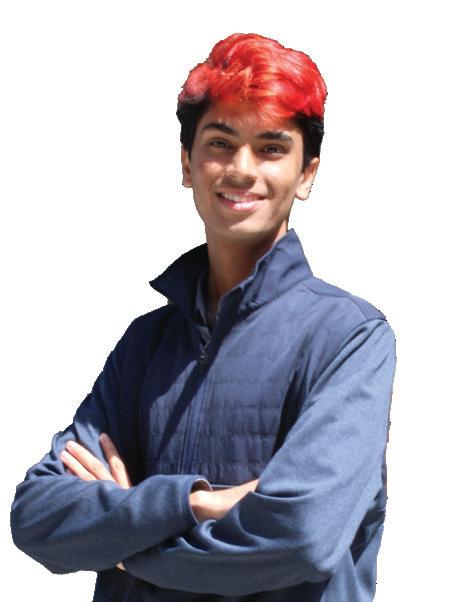
At Gunn, Jain has constructed drones and other mechanized objects, testing these projects involved building a drone that could
“I can custom-make cakes, which a lot of bakeries can’t do, and I can make it completely customizable to whatever anyone wants,” she said. “I can mix and match different things.”
herself, from making and delivering cakes to managing expenses and advertising. Ginn has also started catering, providing desserts at
worked on it for a couple summers,” -
View to build a drone affordable to the that got me interested in the professional side of aerospace engineering.”
Jain’s experience with drones helped him land an internship at the Lockheed Martin Space Sciences and Instrumentation Center, where he works to tracktually, Jain hopes to work in the policy side of aerospace engineering.
“I want to also be guiding where we dedicate resources and regulate more of them to the space industry,” he said.
“With the large emergence of private sectors and less government, it will be critical in how to regulate these companies and people in the aerospace industry.”
Next year, Jain will study aerospace engineering and potentially business at the University of California, Berkeley.
“I will continue working — apart from coursework — in rocketry teamshaps at Lockheed and NASA,” he said.
—Written by Michelle KooStanford events and other private parties.
Her most common cake order is a chocolate cake with raspberries, and her favorite cake that she’s made was a
“It took me an entire day to pipe the entire thing,” she said. “Everyone loved it so much, and I get so many compliments on it to this day.”
Ginn prices her cakes from $30 to $100 based on size and ingredients
to attract customers.
but if it’s something I enjoy doing, and I just happen to get some money for doing it, then it goes well,” she said.
Though Ginn is unsure about continuing her business due to limited time and access to equipment at the University of Washington, where she’s matriculating, she knows that she will continue baking and cooking.
“It’s a really useful skill to have and a fun one too — you get to explore and experiment,” she said.
—Written by Fiona Xiong

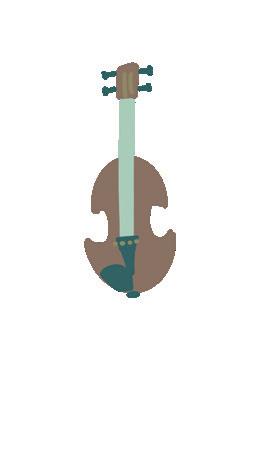


Whether it’s singing in concerts, playing in piano recitals or performing in plays, since the age of 3, Mariam Kubursi has been in the spotlight. After tryingnally found her passion in singing. -
old, and the thrill of it all really got to me — being able to perform on stage somewanted to do and that singing was going do for the rest of my life.”
Throughout high school, Kubursi has continued to sing at concerts and in theater, but she has also written and released her own music. Although she initially envisioned a future as a classical singer or on Broadway, things began togle, “Romeo,” in her sophomore year.
“Now my dream is to be a songwriter who writes and produces her own
Obsessed with horses, Jenna Kang began playing violin at 6 years old because the instrument’s bow was made of horsehair.
Since then, Kang has explored classical music as a soloist, chamber musician with Young Chamber Musicians and orchestra musician in the California Youth Symphony and National Youth Orchestra. She treasures musical modes of expression and the ways they can help her community.
“(Music) is a time to be in a safe outlet by yourself,” Kang said. “You just get absorbed into it. And there’s so much you can do with music — performing, volunteering and teaching.”
Apart from music, Kang has been learned about neuroscience in seventh grade.

explored intersections between music and neuroscience.
Stanford camp freshman year, and we basically learned about new modern in-
ventions regarding neuroscience and
of research regarding the two.”
Kang has also taught music to students with autism at her church and the Academy of Music and Arts for Special Education. She is interested in understanding music’s role in neurological treatment.
“Playing music can help patients that it’s very interesting,” she said. “Music activates both hemispheres of other activity does that, and that alone opens a lot of doors.”
During her next four years at Stanford University, Kang hopes to double major in music and neuroscience.nose patients with music,” she said.searching who is unique because he shown symptoms of dementia. There’s so many different signs art can show it.”
—Written by Michelle Koohopefully one day and make a name for
relate to my music more than anything, that people will feel seen or heard (in).” Kubursi will continue to pursue her lifelong goals at the Berklee College of Music next year.
to push my boundaries and to create things that haven’t been created yet,” growing as not only an artist but as a human being.”
singing and songwriting skills.
have to learn and be introduced to, and
going to teach me a lot when it comes to songwrit
really excited to learn all the completely dif ferent sides and basi cally the math behind songwriting.”
Syed






in her middle-school computer science classes, and participating in this event of women in computer science.
“Seeing so few girls in my class and then attending this hackathon where itence) even more,” she said. -

The rock was soft. Or rather, what then third-gradanemones, their tentacles tucked in at low tide. Exploring tidepools for thetem of marine creatures. have adapted to deal with the sun (during low tide) but also being fully submerged when it’s high tide,” she a passion for marine biology, as well as organism-level branches of biology (such as birds and trees) and microbiology. These interests have since made their way into her gardening and cooking endeavors. Tomatoes and sun-

her garden, and she has even grown juicy spiky cucumbers that can’t be found in supermarkets. To has used her knowledge of
with people all over the world.”
continued to observe a gender gap in computer-science activities and courses. As vice president of the that her club always retained fewer members compared to similar clubs such as United Computations or Competitive Programming Club — both
N-P-K — nitrogen, phosphorus and po-
she gardens, using butternut squash in that butternut squash comprised most-
of which had limited gender diversity.ods to close the gap.
ed in helping me, but with the help of
during lunch, and during course regiswe would go a couple times a week and give presentations at the math classes and the engineering classes there to
found a large increase in female enrollment in computer science.
“That was an incredible achievement impact on my own high school and community about something that acgirls to join STEM and not be afraid or intimidated, and creating a more positive and inclusive community is a big future goal for me.”
—Written by Maddie Cheungtheory should keep the bread similarlyally similar to milk bread.”
tures have developed alongside her curiosity in biology in what she describes
isn’t sure how her pursuit of biology will look in college and beyond, she hopes
“Biology is the study of life and living things, and as a living thing, it’s just really cool to try to understand how we work,” she said.
—Written by Irene Tsen



Rahil Menon’s interest in theater began in third grade after he played the king in a school play, “The Frog Prince.” Since then, theater has remained integral to his life.
“I spent a lot of time with other actors and people doing theater,” Menon said. “After I got into theater, I’ve met so many people that have been very infuential in my life.”
In 2021, Menon enrolled virtually in the Acting and Performance Summer Institute of the University of California, Los Angeles. Over that month, Menon participated in classes like Movement, Introduction to Acting and Scene Study, putting together a portfolio of his taped acting performances at the end.
The following summer, Menon attended an in-person theater program at New York University, which included method acting, where actors incorporate personal experiences and emotions for a more authentic performance.
Picture this: lizard-like aliens, living in spherical homes on a planet covered in ocean. You have offcially entered the “Migalaxy,” Miguel Lopez’s self-designed universe of planets, each complete with their own unique backstory, geography and inhabitants.
The “Migalaxy” was one of Lopez’s frst outlets for his creative talent. Through colorful Lego creations, comic drawings and even Minecraft, Lopez found a passion for creating elaborate worlds around stories of people, places and things.
“I love designing,” he said. “I spend a lot of time making aliens, designs for vehicles, machines, planets, mystical worlds, cool architecture — it all comes completely from my head.”
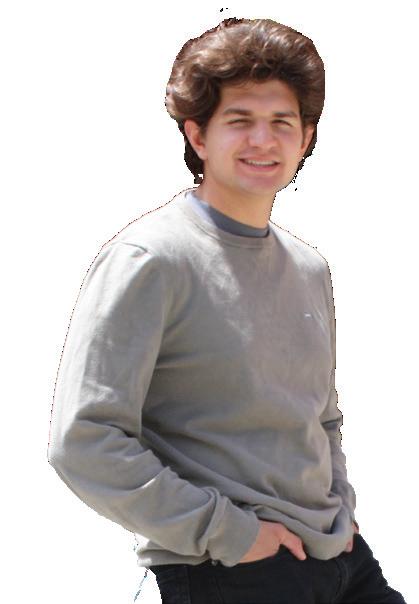
While Lopez occasionally references images to capture basic shapes or refne details, he prefers to create designs entirely from his own imagination.
In addition to Pinterest, his main source of inspiration is movies, which is why he
something like that before, and being in front of the cameras is so different than being on a stage.”
Menon appreciates how theater has taught him the importance of vulnerability.
“I’m so immersed in what I’m doing in theater — I am able to fnd myself and my identity,” he said. “Basic trust is (also) something so important in theater. Method acting involves very vulnerable and personal experiences that shouldn’t be shared out — it’s like telling a secret.”
Next year, Menon is majoring in Theater, Film and Television at UCLA. With the university’s prime location near Hollywood, Menon is excited to further his acting journey through agencies and internships.
recently made it a goal to watch a one movie a week. Many of his ideas also come to him during swim practice.
“That’s when I’m getting my ideas, and when I get home, that’s when I actually put down my ideas on paper,” he said. “I’ll make whole stories in my head (while I’m) in the pool.”
Like many artists, however, Lopez is no stranger to creative burnout.
“Sometimes I’ll sit down with a white piece of paper in front of me, and I just won’t draw,” he said. “I have vibes that I want to put on the paper, these general ideas, but I don’t know how to put them down.”
This kind of “art block” troubled Lopez during his sophomore and junior year. But he rekindled his love for drawing and designing in the summer before his senior year, creating designs to apply for college programs. As of now, he’s interested in becoming a creative director in the flmmaking industry.
“The characters, the costumes — he’s in charge of all that,” he said. “That’s what I would like to do. I would like to design aliens for ‘Star Wars’ or for Marvel or something like that.”
—Written by Kaitlyn Chen“I’m really interested in going into flm and screen-acting (actors portraying media characters on camera), and the NYU program was something where I was able to get my frst experience doing that,” he said. “I’ve never done

“I really liked what they were offering with the TFT, where it wasn’t just theater that I was doing — it was acting,” he said. “(The education is) like none other, where you’re immersed in an area where everyone around you is like you and passionate, (and) the teachers that you’re working with are passionate. That is so integral in having a good college experience.”
—Written by Ellie Yuan



Alexa Nanevicz is grateful she was rejected from the Gunn Robotics Team in junior year — in fact, it helped her further pursue engineering, a passion she will continue to explore at the University of Arizona next fall.
“I was not meant for that,” Nanevicz laughs. “I’m doing my own hardware stuff for my computer science project anyway!”
What Nanevicz found most contributive to her passion for computer and electrical engineering was the coursework she took at Gunn, largely infuenced by her teachers’ mentorship and passion.

From sophomore-year summer to senior-year winter, Alisa Novitskaya volunteered at the Stanford Educational Forum, planting vegetables in the fall and harvesting the crops in the summer. This opportunity opened her eyes to sustainable and organic agriculture and guided her decision to major in agricultural science.
“I was learning from students that are agricultural and environmental science students at Stanford,” she said. “They come from all over the place and have different perspectives on everything, and it’s just really interesting to listen to while doing mundane tasks like weeding.”
Novitskaya grew up in Nashville, Tennessee, and often visited countryside farms with her family. Moving to California showed her the importance of agriculture as a system.
“A lot of people didn’t realize how important it is here because a lot of peo ple are focused on tech and not really on a more traditional or not-asfancy sort of profession,” Novitskaya said. “But I think it’s really important.”
ing program at University of Arizona — she’s also excited about the cacti.
“The second I got off the airplane (while I was visiting), I was like, ‘What the hell, these cacti are real?’” she said. “The whole place was gorgeous, and the people were very friendly.”
Making the decision to attend the University of Arizona wasn’t something Nanevicz expected, though.
“I realized that it doesn’t matter, the acceptance rate or ‘prestigiousness’ of the school,” she said. “Their engineering program is really good, and you don’t have to go to the best school ever to get a good education.”
“I haven’t taken an engineering class at Gunn, but I know that engineering pulls many different sciences together in a way that I fnd interesting,” she said. “AP Physics 1 — shoutout to Ms. Norberg — was my favorite class I’ve ever taken at Gunn. That defnitely put me on the track of almost choosing to major in physics.
But I enjoyed my CS classes, like Functional and Object-Oriented Programming and AP Computer Science.”
Nanevicz isn’t only excited for the high-caliber engineer-
Over the years, Novitskaya has explored various perspectives on agriculture through volunteering, going abroad, and traveling with her family.
Last summer, as part of a Council on International Educational Exchange program focused on climate change, she learned how Costa Rican people battle climate change through agriculture in Monteverde, Costa Rica.
“Seeing different farms of different countries, (I saw that) other countries are able to do (agriculture) sustainably,” she said. “So can we, but we aren’t really pushing towards that. I want to focus on the sustainable side of it and help other farmers make better choices that are more environmentally friendly.”
Through majoring in agricultural science at California Polytechnic State University, San Luis Obispo, Novitskaya hopes to learn more about the agricultural system in the U.S. and abroad.

“As people live in more urban areas, it’s harder to get fresh food and food deserts are a big problem,” she said. “Being able to assist people with getting fresh produce in a more environmentally friendly way would be really cool.”
—Written by Sophia HwangboIntending to join a sorority wasn’t something that Nanevicz expected, either, but her visit to the campus helped her realize how important it was to her to socialize with fellow women in STEM.
“The engineering program is small, and there’s not a lot of women, so I think (joining a sorority) will be good for study groups and fnding people who I can relate to the most,” she said.
—Written by Becca Wu



Like many other then-freshmen, Zairy Poot found herself bored at home during the COVID-19 pandemic. So, when she saw her mom starting to work out in the house, she decided to join her.
What began as an activity to pass the time slowly evolved into a part of Poot’s routine beginning sophomore year. She transitioned from at-home training to a gym-going regimen, focusing on different muscle groups each day and always ending her workouts on the stepmill.
“At the beginning, when I would go to the gym, I would be nervous and think, ‘Oh, I don’t know how to use this,’” she said. “(But I eventually realized that) no one is really focused on you.”
For Poot, the benefts of working out extend beyond the gym.
“I used to compare myself a lot with people on Instagram,” she said. “But since I started (going to) the gym and everything, I feel more confdent about myself. … I just like trying to do bet ter every day and focus on what I can do and what I cannot.”
Beyond high school, Poot plans to continue her strength training through competing in
Having been on the Gunn Robotics Team for three years, pursuing mechanical engineering seemed like the clear path for GRT captain Jacob Olshen. However, following a visit to the University of Washington, Seattle, where he plans to attend college, he now hopes to pursue electrical and computer engineering.
Olshen joined GRT after taking Introduction to Engineering Design in his freshman year, where he took a liking to computer-aided design. In sophomore and junior year, Olshen worked on mechanical design for the team’s drivetrain subgroup.
Through the robotics team — especially its startup-like organizational structure — Olshen has gained valuable experience for college and the tech industry.
“It is my dream to be part of a startup, even if that startup fails,” he said. “And that’s how GRT operates. GRT has helped me understand what it would be like and also the challenges that I would face if I were part of or started a startup myself.”
Olshen appreciates the freedom GRT and high school have given him to explore various interests and make
body-building competitions. Moreover, as a frst-generation college student, she plans on majoring in psychology — an interest she found through taking Advanced Placement Psychology at Gunn — at San Jose State University.
“(Personality-wise), I like to listen to people — I’m more of a listener,” Poot said. “Every time that my friends want to talk about something, I’m always there for them to talk, and it kind of made me realize that maybe I have good-quality traits to become a psychologist.”
Poot hopes to pair her psychology studies with her love of training to become a clinical sports psychologist.
“I’m excited to work with different athletes and try to help them with their physical performance,” Poot wrote in an email. “I feel like a lot of what makes a good athlete perform better is the way they think or react to challenges, so I’m looking forward to helping them to reach their full potential.”
mistakes without having to fear the consequences.
“I’m lucky to have made the mistakes where the stakes are relatively low compared to my entire career,” he said. “If you don’t try a bunch of new things in high school such as GRT, or even multiple aspects within GRT, then you’re not going to make the most of the few years that you have where the stakes are low.”
Though he has enjoyed being able to physically interact with the systems around him through mechanical engineering, Olshen is also interested in delving into the ever-growing theoretical felds of electrical and computer engineering in college.
“It’s a little bit less tangible — and that’s why mechanical engineering has had such a pull, because I can understand that — but electrical engineering is just completely high in the sky, and that’s what I really want to understand,” he said.
—Written by Vivien Chen
 —Written by Chris Lee
—Written by Chris Lee


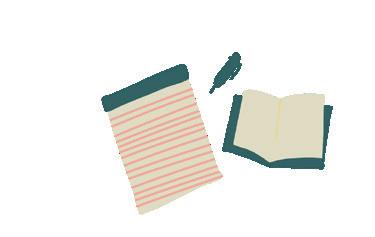

Six months, 37 drafts, pages saturated with her favorite authors’ words: While most seniors were trudging through college essays, Vandana Ravi was having a blast.
“Move over, Hamilton,” she joked. “I can write essays.”
Such dedication is a hallmark of Ravi’s writing process, which has evolved alongside her literary tastes. Over the years, she has moved from “karaoke writing” imitating canonical authors to poetic, philosophical and psychological explorations infuenced by contemporary authors of color.

While Angelina Rosh’s journey with environmentalism began at the start of high school, she had witnessed climate change’s impacts long before then.
“I was born in a village in the south of India, and it’s very immersed in nature,” she said. “But as I’ve grown up there throughout the years, I’ve seen it deteriorate due to climate change and things like improper waste management and overbuilding.”
Increased online exposure to social justice issues during the pandemic solidifed Rosh’s passion.
“Whenever I do environmental work, it just feels right,” she said. “I feel driven, I’m always motivated.”
In high school, Rosh has worked with numerous environmental initiatives and groups, serving as green commissioner on the Student Executive Council, interviewing Palo Alto community members affected by climate change, and organizing climate rallies and summits. Rosh’s work on the Electric Water Heater

Turnkey Installation Program
Ravi’s frst forays into literature began with Henry James and Jane Austen. Since middle school, however, she’s been drawn to experimental writing from authors like Korean American poet Franny Choi.
Work like Choi’s flters into Ravi’s writing: In a sophomore-year Advanced Authentic Research project, she explored how Jane Austen’s literary techniques connect to evolving understandings of empathy in cognitive science.
Drawn to activist writing, she’s worked with organizations like the Palo Alto Hu-
stood out the most for her.
“I saw that from its inception to its completion, and it just opened my eyes to how grassroots organizing not only works but also is so powerful,” she said. “We went door to door, organizing a campaign for Palo Alto to launch a program to help residents gain access to subsidized electric water heaters instead of their gas water heaters. … Then the City Council approved it, and it went into implementation. Being a small part of that showed me that, despite it being a global crisis, (through both) local actions and individually we can help in our own ways.”
Rosh plans on enrolling at the University of California, Berkeley, next year, majoring in environmental studies.
“One of my main goals is to work in community-geared solutions, whether that’s continuing to be part of the grassroots activism feld or helping policy shape communities that are disproportionately affected by climate change,” Rosh said. “Especially coming from my background — a small rural village impacted by climate change — I really want to do my part in giving back to these communities.”
—Written by Safna Syed
mane Society. While often abstract, her work is still rooted in her environment.
“I wanted to name what feels wrong about the ways that we assign value to human life in (Silicon Valley’s) culture and the ways that we decide what is worth fghting for,” she said.
Ravi also appreciates literary collaboration, quoting others liberally in her essays. She’s worked with mentorship organizations connecting young poets to mentors, and, over the years, coldemailed dozens of authors and poets she admires for online meetings.
“When I love someone’s writing, I will jump off a bridge for them,” she said. “So when I’m on the page, I’m not there alone — I’m there with so many people that I love.”
With Scholastic Writing Award medals and a published book under her belt, Ravi will attend a liberal arts college this fall to study neuroscience and English.
“I want to learn the language of the academy, and then know how it works so that I can subvert it,” she said. “I want to be someone who knows the language, but then uses it the way it’s not supposed to be.”
—Written by Amann Mahajan



During the second semester of his junior year, Mihlaan Selvaretnam transferred to Middle College, a program allowing him to take classes in a cohort at Foothill Community College. At the time, Selvaretnam liked the idea of getting college credits early and felt overwhelmed balancing his time-consuming commitments.
“I was really stressed with all of my schoolwork, wrestling and social life,” he said. “I was trying to balance all three things at once, so I thought it would be a good move to try something new.”
At Foothill, he enjoyed voicing his opinion in discussion-based classes.
“It defnitely fostered a good environment for discussions,” he said. “It was very discussion-based, and you were able to say your actual opinion on something and the teachers were very receptive to what you were saying.”
Selvaretnam noticed that people were less cautious about the topics discussed in class, which benefted his learning. Still, while Selvaretnam enjoyed learning at Foothill, he wanted to be back at Gunn for his fnal year of high school. Returning made him realize how
In freshman year, Josh Scheinman enrolled in video production at Gunn, marking the beginning of his flmmaking journey.
“I wasn’t very good at it at frst, but I just kept taking videos because it was becoming more and more interesting (to me),” Scheinman said. “Plus, I had nothing to do at home. The more I made, the more fun I had, so I just kept on going with it.”
Though Scheinman is probably best known around Gunn for his sports videography, his frst works were private documentaries about his father and grandmother. His third documentary was Scheinman’s frst public splash in the flmmaking pond.
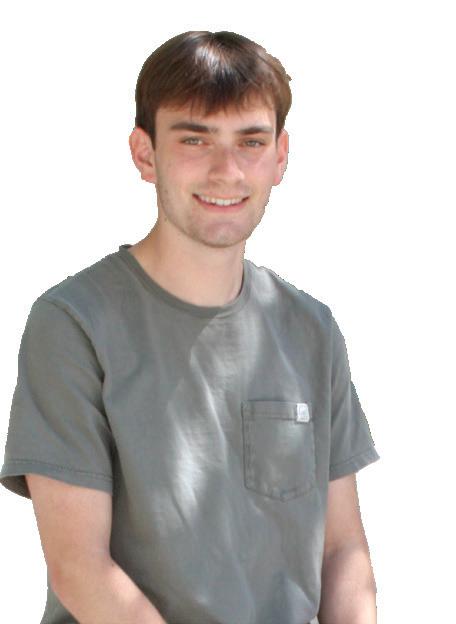
much he had missed the social component of school.
“I made the right decision with coming back to Gunn,” he said. “I was able to learn a lot from Foothill, but it wasn’t well suited for me, and being back here made my senior year feel a lot more eventful and memorable.”
Selvaretnam will be studying business economics at the University of California, Los Angeles, next year.
“The micro and macro econ classes at Foothill really sparked my interest because of how the teacher, Brian Evans, taught the class,” he said. “I’ve always been interested in working for myself, just like my dad does, so I use him as a blueprint and inspiration for my own life path.”
—Written by Zoe
Alongside documentaries, Scheinman dabbles in narrative flms.
“I created this short bike flm with my friend, Pablo Schettino, which was really fun and that was inspired by the movie ‘Hot Rod,’” he said.
Scheinman’s other narrative flms also draw inspiration from comedy movies.
“My brother sends me (movies) to watch a lot,” he said. “He’s hilarious. I defnitely look up to him, and in a lot of ways, him and my family are what inspire me to create.”
Most recently, Scheinman has moved into the world of sports videography. He will continue exploring his passion at New York University’s Tisch School of the Arts, where he’ll be studying flm and TV production.
“Originally, flm school was a really hard thing for me to think about,” he said. “But what it came down to was this realization that, at the end of the day, (flmmaking) is my interest. It’s what I want to do in life.”
—Written by Vivian Studdert“My neighbor is a really good skateboarder, so I took a bunch of footage of her and flmed some of her tricks,” he said. The documentary, “Skateboarding with Lara Botto,” was nominated in the 2023 Sports Story or Segment category of the National Academy of Television Arts and Sciences’ National Student Production Awards.





Flipping through artist Patti Smith’s memoir, “Just Kids,” her sophomore year, Siena Tacy was inspired by the photography of Smith’s long-time friend Robert Mapplethorpe. This, alongside taking Photography 1 at Gunn, pushed her to pursue photography more seriously her second semester of sophomore year.
“I started working in the darkroom — I was in there for four months straight, alone, just printing pictures of plants,” she said. “And that’s when I knew that’s what I wanted to do.”
The following summer, Tacy enrolled in a summer program at the Parsons School of Design in New York, where she worked on thematic projects and her portfolio.
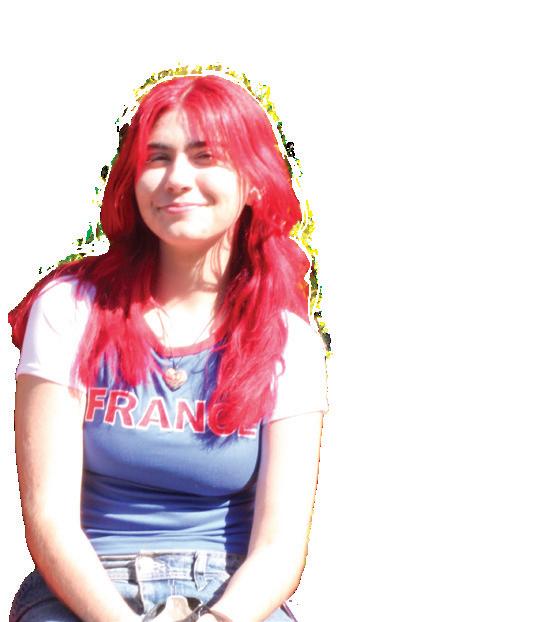
From decorating her belongings to scribbling on walls, art has always been a part of Helen Zheng’s life.
Zheng frst realized she wanted to pursue art when she began to create original pieces.
“Once I started doing my own art instead of just painting or drawing objects, and I started putting my own ideas into my art, it became more serious for me,” she said.
At Gunn, Zheng joined the National Art Society Club and took Advanced Placement Studio Art, which provided outlets to foster her creativity.
“I did the murals at school,” she said. “I worked on the one in front of the library with my AP art class after the AP test. It was a fun experience getting to design them and work on it with my classmates.”

The pieces Zheng makes outside of class incorporate a variety of styles.
“I started mainly doing flm, and I also really loved black-and-white photography,” she said. “But then I switched to digital to do my portfolio. While I still really like flm, I like that with digital, I can play around with colors.”
Tacy attributes some of her best photography-related memories to photography teacher Marie Durquet.
“She’s always been really encouraging to me to pursue my passions,” she said. “I think she’s defnitely a big inspiration for independence and being an artist later in life. She showed me that I can make a career out of this, and that I can be very fulflled by being in the arts world.”
“The series I made at Parsons was about growing up lesbian in the Catholic Church,” she said. “Growing up religious and leaving religion are themes I like to focus on, and make me passionate about creating work that focuses on marginalized communities — especially ones I’m part of.”
Tacy’s art at Gunn has evolved as she has explored diverse mediums and techniques.
“My favorite piece is hard to describe,” she said. “There is a little person in it and also a lot of abstract stuff. I think it’s one of my favorites because creating it was out of my comfort zone.”
When creating a new piece, Zheng prefers to see where her work takes her rather than creating a detailed sketch before she starts working.
“I start on the canvas,” she said. “I draw a little bit, but I mostly adjust as I go. I usually don’t do a sketch ahead of time because I feel like it never turns out how I want it to.”
Although Zheng has experimented with more abstract art, she still enjoys more traditional styles like oil painting and using mixed media.
“I really like using different materials and found objects,” she said. “I’ll use a newspaper from the side of the road or pieces of bark and just mix them.”
Zheng will continue to pursue her passion for art next year, majoring in biology and art at Columbia University.
“I’ve always wanted to explore more experimental work, so it will be really helpful to have access to all the resources and faculty in college,” she said.
—Writtenby
Katie LaWerFor the next four years, Tacy will continue following her passion in the photography and imaging program at New York University’s Tisch School of the Arts.
“I want to carry out a thesis for a long period of time and do one big series dedicated to something I really care about,” she said. “I’m also excited to meet different people, and artists and professors that can inspire me in ways I haven’t experienced before.”
—Written by Katie LaWer




Avery Adelman
Sport: Track and feld Event: 400m hurdles
“Playing throughout high school has let me develop a deeper understanding of strategies and combinations of playing. It’s like seeing the sport through a whole new perspective, and (I was) able to appreciate different styles of play and learn how to be a leader.”
“I love the competitive energy that being part of a team brings and that having a sport in your life brings. I know college is going to (make it) more diffcult to have a sport-life balance, but that kind of built-in friend group and community I have will help me a lot.”



Kelson Cantrell
Sport: SwimmingEvent: intermediate100ydmedley



Nina Albers
Sport: Water polo Position: Set defense


“My senior season has been a great one with Gunn (and) we all fnished strong. (My favorite memory was) holding up that CCS (Central Coast Section) trophy.”


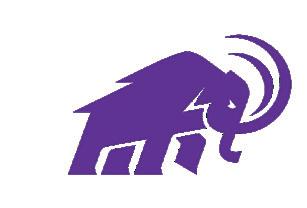

Joel Chen
Sport: SwimmingEvent: breaststroke200yd
“(For) swimming, I feel like the team is the greatest aspect of the sport. I would have quit a long time ago if I had to do the sets by myself, but having a team surrounding me and supporting me is what made me pursue my dreams of swimming in college.”
“It’s awesome how we brought together a group of people who didn’t really know each other at all because diving is not a very popular sport. We all come together to do this niche sport that (we) like. It’s really enjoyable and really fosters a nice sense of community and team how to be a leader.”








Victor Dang
Sport: Diving Event: Springboard







Julia Maecker
Sport: Swimming Event: 50yd freestyle
“Swimming on the high school team has introduced me to more people I wouldn’t have met otherwise if I just continued swimming in my club. It’s given me great opportunities to bond with other people and learn skills, like how to communicate (and) how to organize things.”
“I love rowing because it feels really good to make the boats go fast and I love being able to do things with my team and build a sense of team together.”

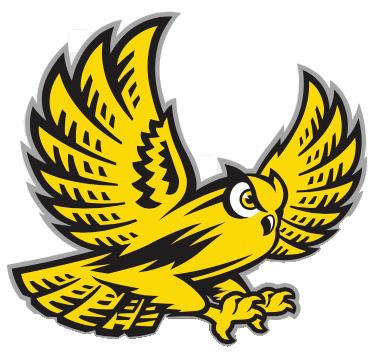

Sport: Rowing












Jake Seley
Sport: Running Event: 1600m, 3200m
“(Running on the team has) really shown me how much work the coaches have to put in to make the whole sport possible and how good leadership can improve the sport for those coming into it, like (the) underclassmen.”

“Being on Gunn softball for the past four years has allowed me to grow as a player and a person. My teammates have supported and inspired me to play at the next level (and) have allowed me to grow as a more confdent player. Even though it was a new team every year, I still could feel how well we all played together and how much we all cared about each other beyond (softball).”



Parker Vale
Sport: Soccer Position: Center back




Sport: SoftballPosition: Pitcher
“Playing throughout high school has let me develop a deeper understanding of strategies and combinations of playing. It’s like seeing the sport through a whole new perspective, and (I was) able to appreciate different styles of play and learn how to be a leader.”

To explore his passion for the social sciences, Raphael Barbier has enrolled in Columbia University’s dual-degree study-abroad program with Sciences Po, a political-science university in France. For two years, he will study at Sciences Po’s campus in Reims, France, where he plans to earn a degree in economy and society.
Then, he will return to Columbia, where he will receive a second degree in economics and math.
Barbier chose this program to experience living in a different place. He believes the locations of both universities — Reims and New York City — provide the ideal opportunity to immerse himself in a rich political and cultural environment.
“France is full of European culture, and New York is the ‘Western capital of the world,’” he said. “I’m able to study what I love, which is the social sciences in an international setting, and at two great universities in two great locations.”
This program will not be Barbier’s frst time living in a new country, having stayed with his grandparents in France.
“I feel like I’m relatively adaptable when it comes to living in a new country,” he said. “That being said, it’s going to be
a huge culture shock because the language is different, and I’m going to be in an apartment alone because it’s not dorms. So it’s a lot of independent life in a country that I am not very familiar with.”
Barbier looks forward to seeing the differences between French and American society frsthand.
“France is more of a socialist culture, whereas the U.S. is a lot more capitalist,” he said. “It’s going to be very interesting, especially when I come back to New York, (because) I’ll be able to compare the two.”
French universities also have a different style of education, with more rigid class schedules. Barbier hopes to further explore the intersection between social science and math through this program.
“I’m excited to explore how those two felds that are seemingly really different overlap, and how I can use (that) knowledge and apply it to the real world.”
—Written by Vivien Chen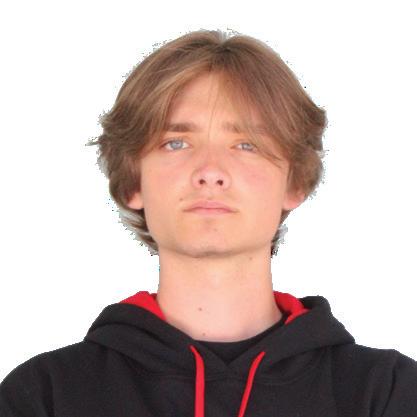
In the fall, Callum Budas will attend the University of Glasgow, in Glasgow, Scotland, pursuing a major in molecular and cell biology with a possible minor in biotechnology. Driven by his love for and familial roots in Scottish culture, his return to Scotland brings him full circle. Budas’ family emigrated from Scotland to California when he was 8 months old.
“I have a lot of family in Scotland, and I was originally born there, so I’ve always been extremely proud to be Scottish,” he said. “Ever since I was young, I’ve always wanted to go back.”
Since the beginning of high school, Budas has been set on attending a Scottish university. Experiencing life in Scotland frsthand for the next four years will help him determine whether he wants to settle down there. Having made frequent visits to family in the country, Budas is already familiar with much of its culture and traditions.
“I really like the music scene over in Scotland,” he said. “It’s much more open to new indie music. In Glasgow, there’s a huge music culture and there’s constantly smaller bands playing in bars. When I visited, I really liked that aspect.”
Academically, Scottish university curricula diverge from those in the U.S.: Students immediately begin taking courses and electives in their intended major rather than going through general education. Scottish grading systems also
differ.
—Written by Bryan Xiao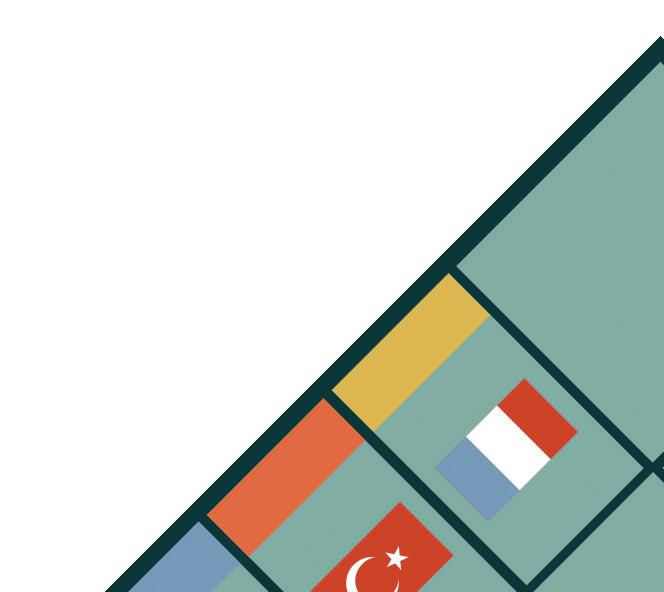

Next January, Daniel van Schewick will travel to Berlin, Germany, for a monthslong government economics internship. He will also travel to Washington, D.C., to work at the World Bank and U.S. Department of the Treasury.
Van Schewick decided to embark on a gap year last summer, when he stared down a daunting senior year and realized he needed something different. The choice was diffcult, given that many of his classmates were going on to four-year colleges.
“But as I spent more time thinking about it, I got more and more excited over the different things that I could still do during my gap year,” he said.
While gap years are often seen as a respite from the chaos of college admissions, van Schewick’s journey was far from easy. Instead of joining a restrictive gap-year program, he planned his gap year himself.
“I’m the one who has to plan it, which means I have to fnd an internship,” he said. “I need to fnd a place to stay. I need to fnd a way to pay, a lot of which is through my own savings.”
At his Berlin internship, van Schewick will be looking into company and regulation case studies and providing policy
recommendations at the Federal Ministry for Economic Affairs and Climate Protection.
“What’s cool is, I’m German, I speak German fuently, and I can go abroad and be with my family and also get this completely different opportunity,” he said.
Van Schewick’s plans in Washington, D.C., took signifcant time and countless cold emails to materialize.

“I sent a ton out to different (companies) all over the place, from startup accelerators to AI companies, just anything I could think of that was offering an internship,” he said. “Most of them don’t answer for whatever reason, and that’s why you just cast a huge net and you will defnitely catch a few.”
After his gap year, van Schewick plans to attend a four-year college.
“(Doing a gap year) was more a ‘How do I get to the place I want to be?’ and then fnding a windy path to end up there,” he said.
—Written by Jeffrey Kang


valuable life skills like self-suffciency and independence. The city’s proximity to large European cities also allows Sarrazin to easily explore different nations and visit relatives.
After deferring their enrollment to Sarah Lawrence College, Sarrazin is open-minded to potential adjustments in their future
“(The job is) not necessarily tying into what I’m planning on majoring in but more (about) trying to experience many things and to discover myself,” they said. “I’m excited to learn more about
Beyond gaining valuable skills in a workplace setting, Sarrazin hopes to explore Turkish culture in Istanbul and other parts of Turkey to deepen their understanding of the world.
“I’ve lived here in Palo Alto my entire life, and I think settling down in a foreign country for a whole year will really give me a different perspective on life in a different area of the world,” they said. “I think that’s a really important skill (as) our society is
—Written by Ellie Yuan
Next year, Julia Hilding will either be studying engineering or computer science at Lund University in Lund, Sweden, or splitting her time between working and traveling. Either way, she has her heart set on Sweden.
Her entire family is from Sweden, according to Hilding, and every ancestor of hers has gone to college in Sweden. Family members’ experiences drew Hilding to pursue education in Sweden.
“My older brother, Max, got rejected from all of the schools he applied to in the U.S., so he was a little bit forced to go to Sweden, but ended up really liking it,” she said. “Before that, I hadn’t thought about going to school there, but now it seems very appealing.”
Hilding grew up speaking Swedish at home and visiting her family in Sweden frequently. A recent visit also infuenced her decision to go abroad.
“I hadn’t really thought about taking a gap year until I was
visiting my extended family in Sweden, and I learned that it’s super common,” she said. “Hearing about their experiences defnitely persuaded me — it sounds really cool.”
Still, Hilding had some reservations about this decision.
“None of my other friends are taking a gap year, so it does make it more diffcult to make that decision,” she said. “It’s hard to do what everyone else isn’t doing.”
Hilding is currently deciding between immediately diving into studies at Lund University — tuition-free for her because she is a Swedish citizen — or opting for a more adventurous route of traveling through Europe and working in Stockholm for half a year each.
Eager to break out of the Palo Alto bubble, Hilding looks forward to embracing new experiences, whether that entails joining the workforce, exploring Europe or studying at Lund.
“After 13 years of school in the same town, I defnitely recommend not doing school for a bit or moving to a different country in order to go see new things,” she said.
—Written by Annabel Honigstein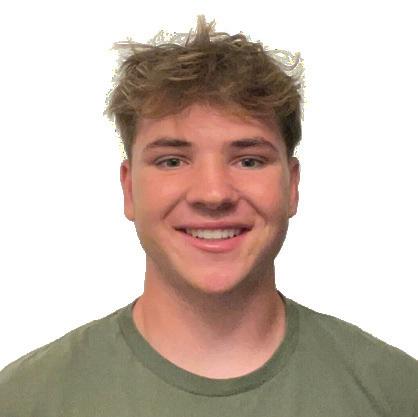


clude logging extensive diving hours, which Flinchbaugh says he will certainly be able to complete with the ample time pro-
Flinchbaugh’s aspirations for the second half of his gap year are on dry land. He hopes to become a licensed and practicing bartender, serving drinks and meeting new faces.
“It’s something I’ve just wanted to do,” Flinchbaugh said. “I like socializing with new people, so I think bartending is a cool opportunity to meet people my age, make new friends
In addition to its unique diving opportunities, Flinchbaugh chose Australia because of its laws around alcohol, which, unlike the U.S.’, would allow him to bartend as an 18-year-old
Flinchbaugh isn’t modeling his plans after those of a friend, nor is he participating in an organized program.
“I want to see where (the gap year) takes me,” he said. “I want to live on my own, have that independence …
Flinchbaugh is choosing to tackle an entirely new place relatively on his own. However, he says his experience living in Kenya over the past summer — a much more rural and logistically complicated destination than Sydney and the Australian coast — will make his transition much easier.
“I want to make a lot of memories,” he said. “I want to come back more relaxed, and with stories and experiences
—Written by Dan Honigstein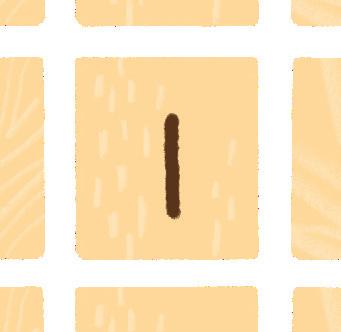





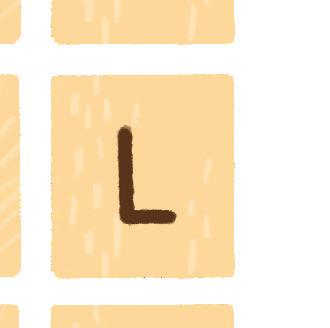

















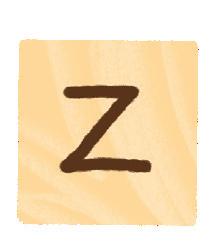


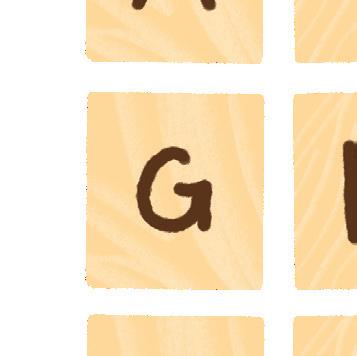






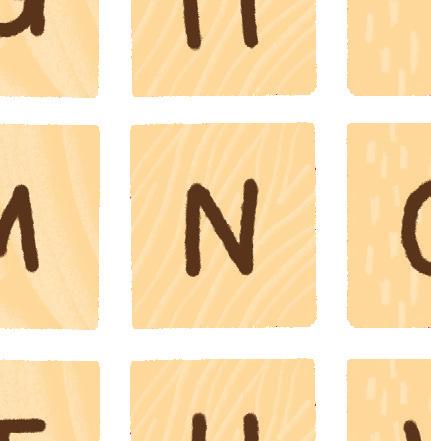
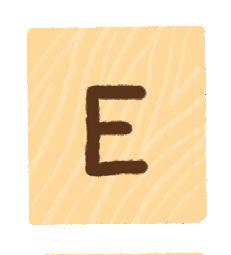

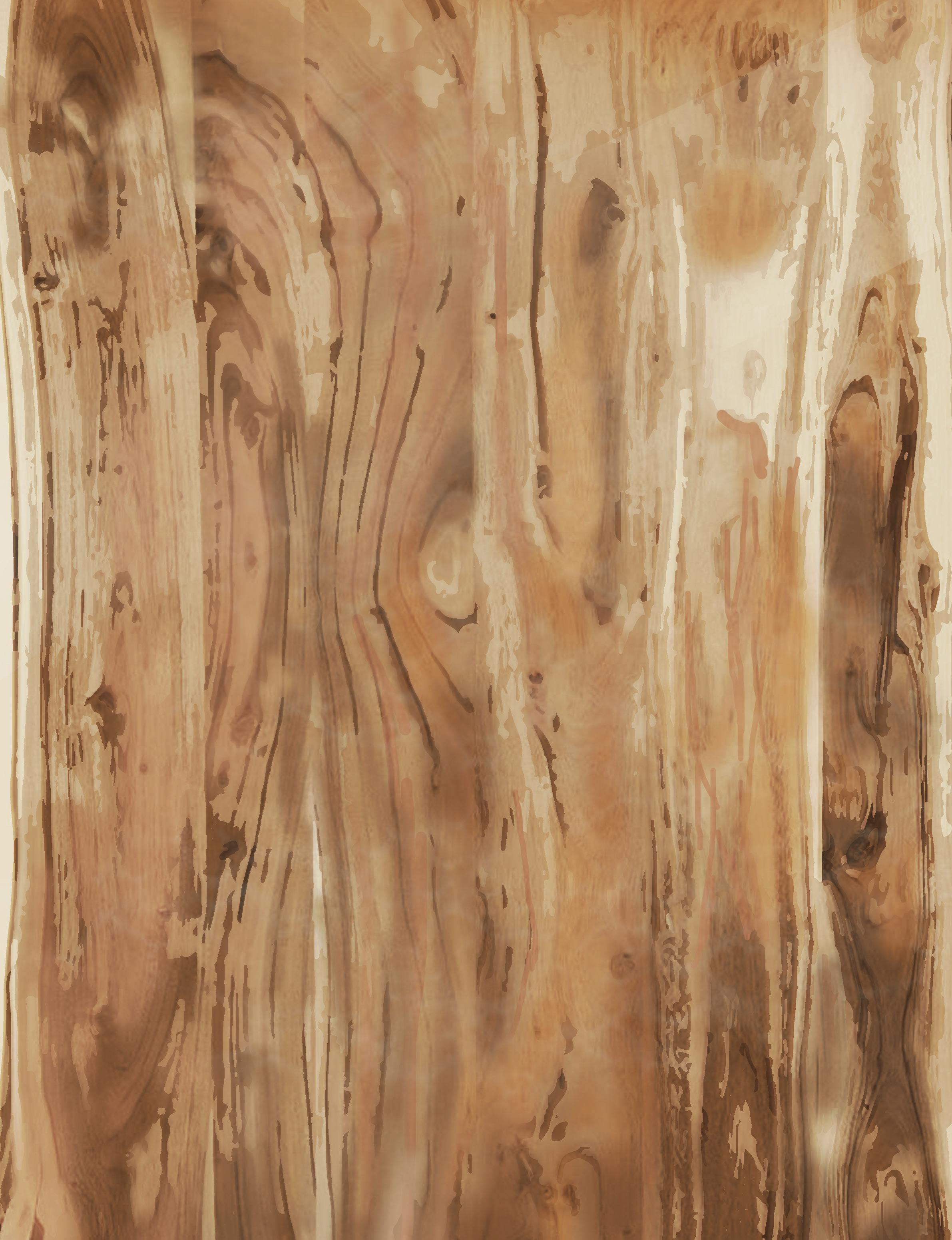
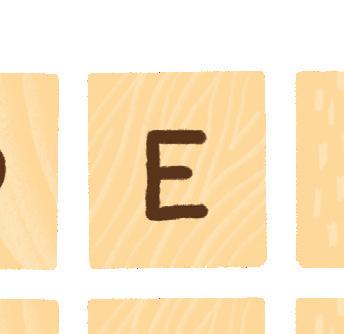












“Make friends with your teachers since they’re people too and offer excellent resources and advice.”
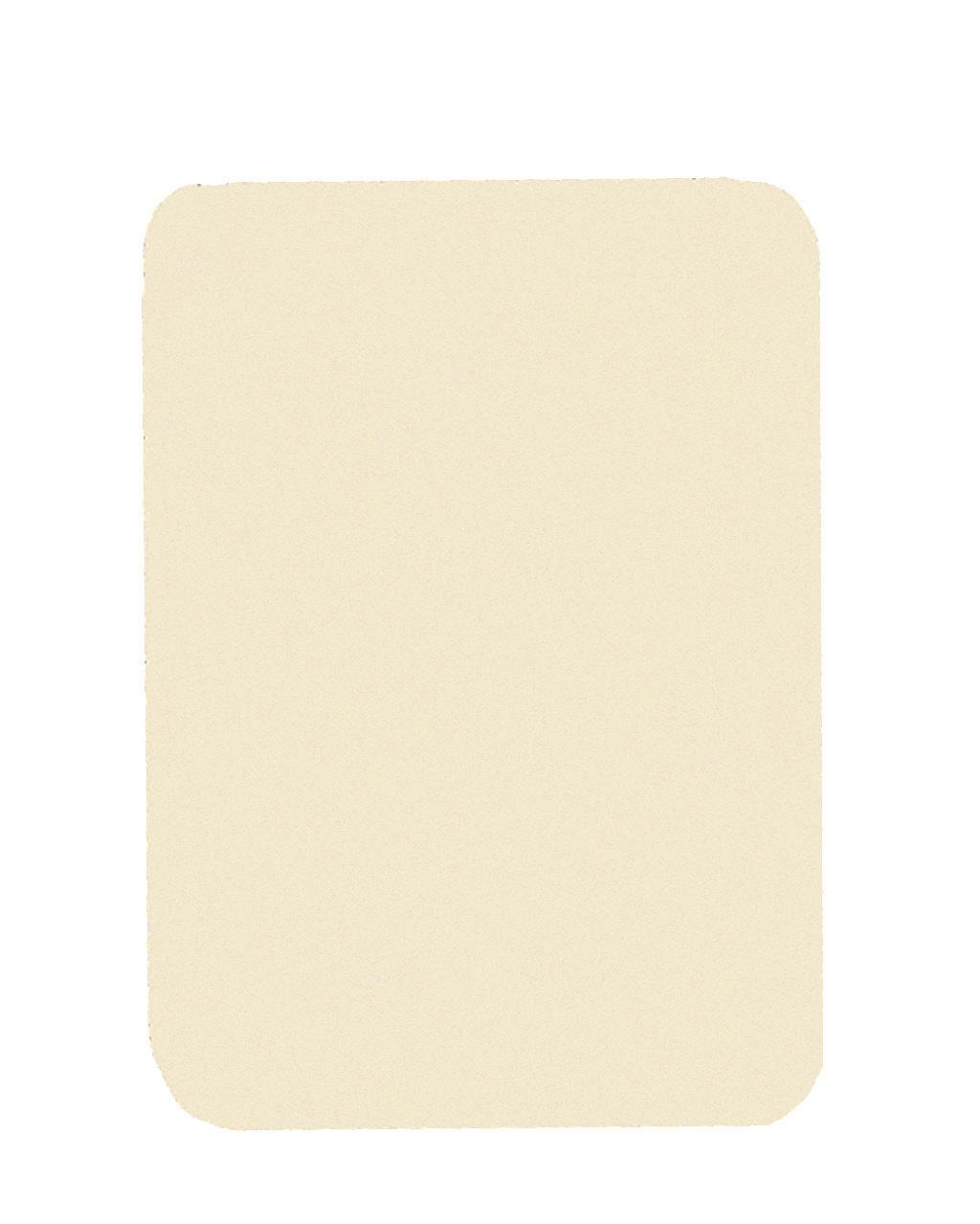

“You don’t have to alleverythinggive your effort — giving your 80% (or even less) is OK sometimes.”
“Enjoy the year, don’t let college apps consume you.”
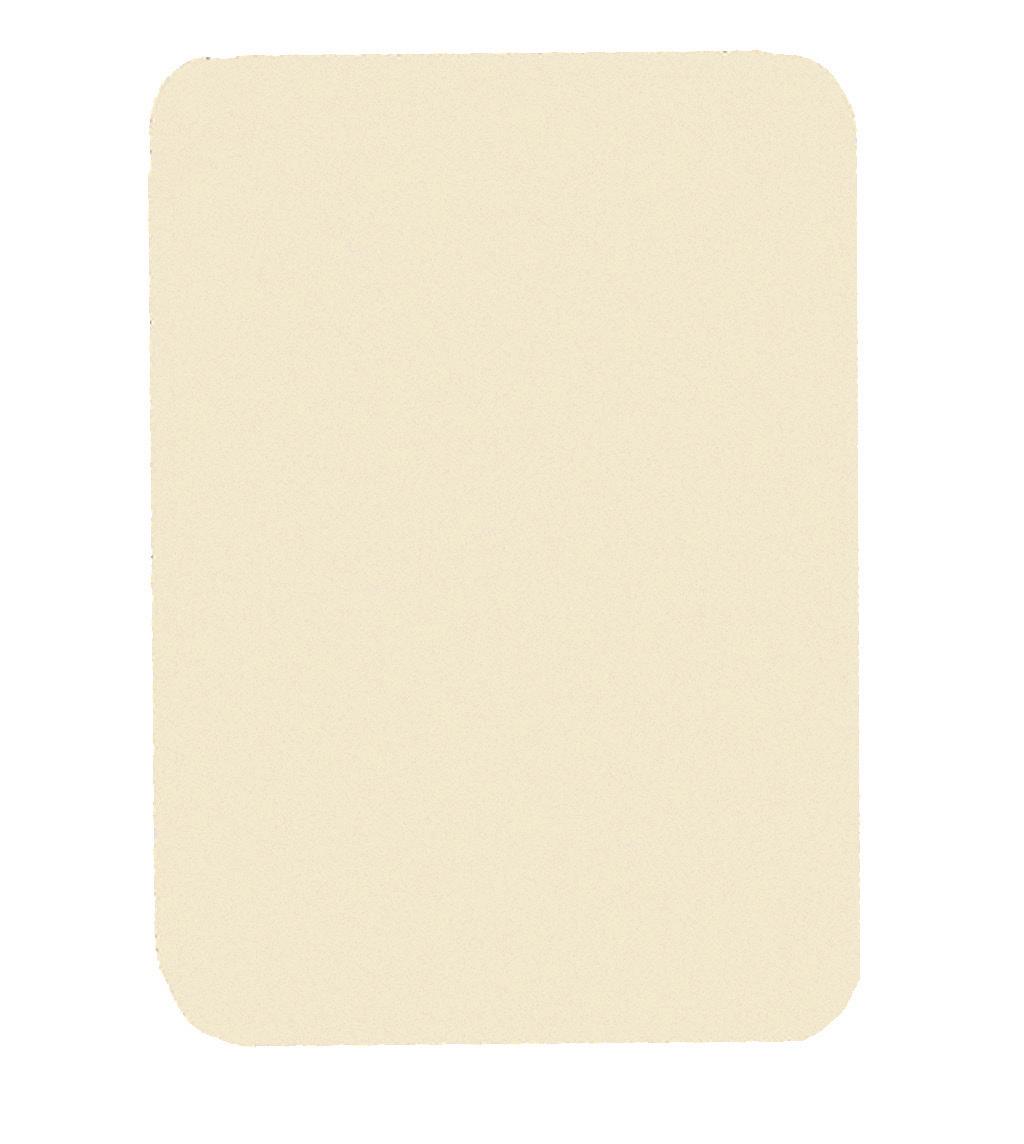
“Stay organized — Google Drive folders, to-do list, calendar, whatever it takes!”
“Unless you’re really into the hard, rigorous academic classes, DON’T TAKE A LOT OF THEM!!! Not having many hard classes and 2 preps is what’s getting me through the year.”

“Focus on what’s going to work best for you.”






“Don’t be afraid to participate in school spirit events and dress-ups!”
“Gunn isn’t as bad as it’s made out to be. experienceYour is what you make it.”
“Challenge yourself, participate in school activities, (and) make REAL friends, don’t just strive to be popular.”


“Don’t forget to keep time for yourself, for your hobbies or things that keep you relaxed and happy.”
“They tell you that you’ll get to enjoy second semester senior year. You won’t. Also, dating is a scam intended to con you out of a 5.0 GPA.”
“Figure out for yourself what you want post-high school, not what others expect of you.”




“Try Exploreeverything! your interests, even the smallest ones, and see where it takes you.”
“You will go through some tough times; face challenges; deal with setbacks. However, believe that one day things will get better. Have grit, and you’ll make it through, I promise.”
“Advocate for yourself.”




“Take advantage of every moment, it goes by so quickly, and don’t get too caught up in senioritis because APs and fnals will sneak up on you.”
“If you’re planning on (going to) college, it all works out and you’ll be happy wherever you get in.”
“The road may seem hard, but when you get to the end, you’ll fnd yourself in a better place than where you started.”


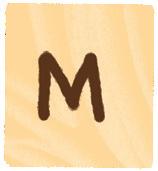



“Cherish your time! Work hard but spend as much time as possible with friends and family.”
“Prioritize spending time with your friends and doing what makes you happy, high school fies by. Also, some parts of Gunn have no Wi-Fi.”
“Keeping up in class is probably the best way to not be stuck studying a bunch.”
“Pursue what you are actually interested in! You will have so much more motivation to deeply engage in the activities that you genuinely enjoy.”


“High school is designed for you to be stupid and do stupid things. Or maybe not, I don’t know.”


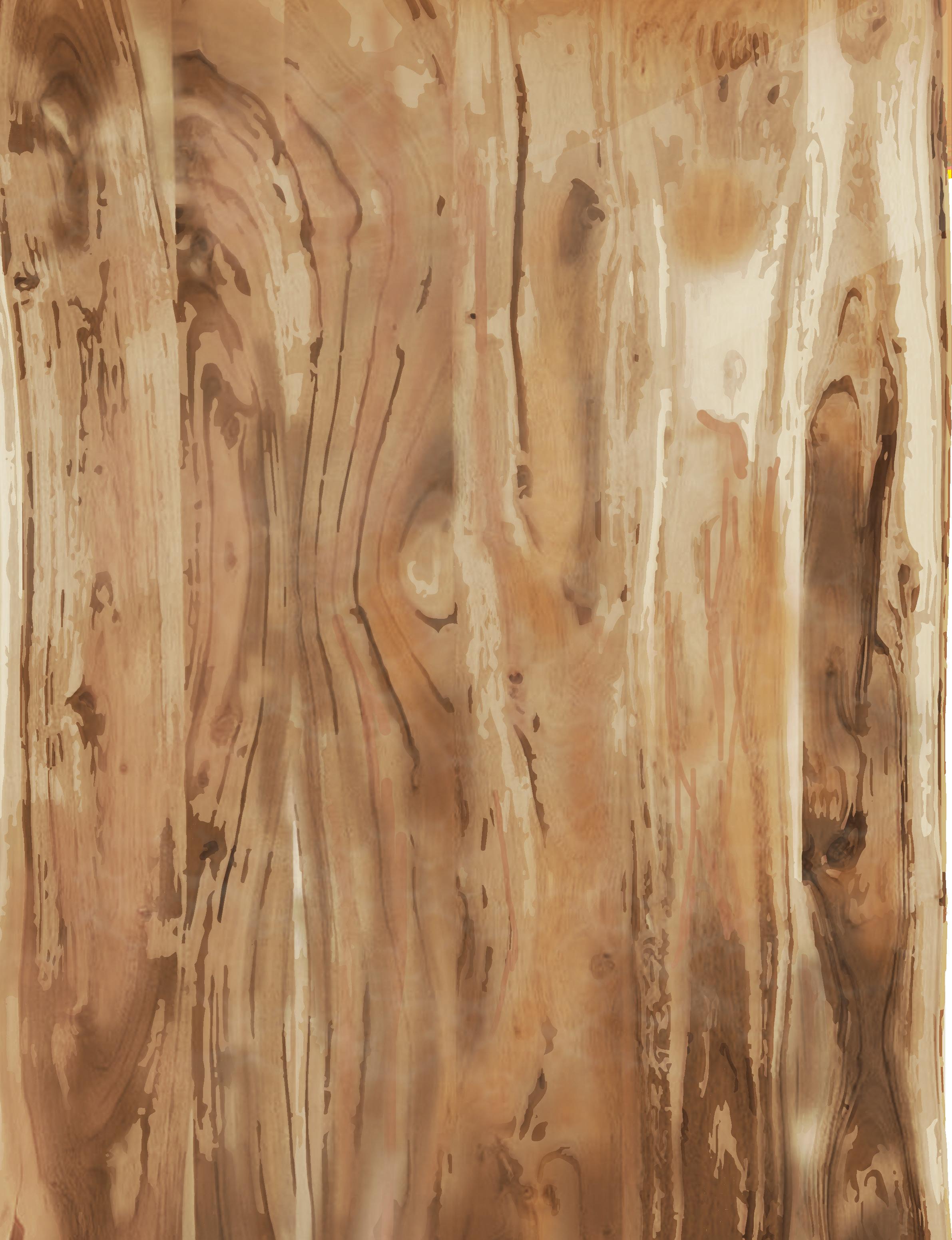

“The amount of time and energy I spent worrying about what others will think of me.”



“Not taking advantage of every opportunity with friends — I spent way too much time studying instead of socializing.”
“Taking physics and chemistry. Don’t do that — actually, just don’t take physics.”
“Not cutting the lunch line more (this is a joke!).”
“Not asking my crush to prom and chickening out.”
“If I’d taken Intro to Engineering and Design freshman year, several later scheduling conficts and poor decisions could have been avoided.”
“Not joining a sports team earlier.”
“Not taking all the opportunities I could have in high school and not focusing on what was directly in front of me.”
“Never getting a chance to check out the Spangenberg pool.”
“I locked in a little too much. I wish I let myself do more fun things and take fun classes instead of trying to please future colleges (they didn’t want me anyway).”
“Not interacting more with my teachers.”
“Stressing over small decisions, not taking an art class and not having a prep senior spring.”
“Not participating in or going to a lot of school events.”
“Not spending enough time trying to get to know new people.”
“Probably not joining more school community involved classes like The Oracle, SEC or Yearbook.”
“Never going to the Swing Dance.”
“Not putting myself out there enough. Being scared in general of what people thought of me. I was a huge victim to the spotlight effect, which is just overestimating the amount of people who are noticing and paying attention to me.”
“Not being in foats and airbands in junior year.”
“Not joining any clubs after freshman year.”

Source: Survey sent out to Gunn seniors by The Oracle with 139 responses.
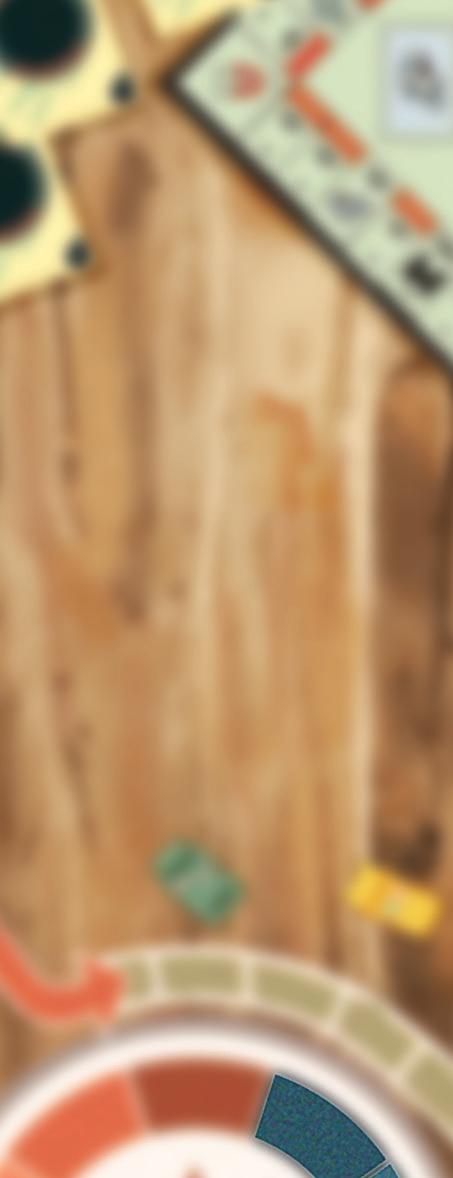
“Have a wonderful weekend, and if you can’t be smart, be safe!” —Social studies teacher Ben Beresford
“Let your inner capitalist shine.” —Science teacher Mark Brassey
“What do you young rizzlers say these days.” —English teacher Justin Brown
“There are a bajillion Ed Sheeran faces everywhere.” —Social studies teacher Warren Collier
“Chat, I’m mogging you.” —English teacher Paul Dunlap
“I’m never OK, and that’s what makes me special.” —Visual arts teacher Mark Gleason
“You can’t help me. Many people have tried.” —GRT advisor Kristina Granlund-Moyer
“I know that quiz wasn’t easy. The drop deadline is Oct. 14.” —Math teacher Danny Hahn
“Don’t let big tech woke mind virus socialists tell you where you can put the word ‘me.’” —English teacher Mark Hernandez
“That sounds delicious and legal.” —Economics teacher Dawna Linsdell
“I’m not endorsing prostitution, but Switzerland is the place to go.” —Economics teacher Phillip Lyons
“See, when you’re high on opiates, maybe writing recommendation letters is not a great idea. Call it the Paley Opioid Theorem.” —Computer science teacher Josh Paley
“The bonds keep breaking and reforming between all the hydrogen molecules. It’s like high school relationships.” —Science teacher Casey O’Connell
“Melted ice cream makes me really sad because, you know, it’s lost potential, and I already see enough of that in my day job.” —Social studies teacher Jeff Patrick
“You’re going to eat this up.” —Math teacher Chris Redfeld
“Your SAT this weekend got canceled? That’s good! You can study for the unit test next week!” —Math teacher Gopi Tantod



“The only time I’ve gone to SELF this year was when I thought it was Study Hall that week.”
“I ran the gunnbananas Instagram account. I lost the login info last year, but there is one other person at Gunn with the password.”
“I watched the guy in front of me watch boxing matches during every French class.”
“I didn’t learn anybody’s names for the frst two years of high school.”
“I was the secret positive-psychology car-note leaver.”
“I snuck into the 2021-22 senior panoramic photo, but I don’t know anyone who bought it. So, I guess I’ll never know if I actually made it.”
“I lied about my birthday once on my public Instagram account and 200 people sent me birthday messages.”
“(During) Chemistry H with Mr. O’Connell, we were doing a lab with a bunch of solutions. There was some dry ice out and I put it in one of the solutions — I think I lost more than a couple of brain cells inhaling the fumes. But hey, at least it felt good.”


“Ms. Granlund-Moyer kicked me out of SELF for eating and then locked me out of the classroom with all my stuff inside.”
“Whip and nae nae in front of the whole school when the music didn’t play...”
“Falling up the N-building stairs.”
“When the seniors got fourth place for a homecoming game.”
“Throwing up outside the P-building in the middle of seventh period.”
“I crashed into the water sprinkler by the El Camino intersection with my bike, and it sprayed water everywhere. I couldn’t put the chain back on my bike so I dragged it home.”
“That one time we played frisbee in AP Lit and I stepped on a mud patch and slipped like a cartoon character. Or, the time I slipped during the dodgeball tourney and sprained my wrist. Yes, I slipped a lot.”

“(My dad said), ‘Since I have cancer, you have the ultimate homework excuse. Take advantage of it.’”
“My uncle died (he died 6 years ago).”
“My cat ate my homework (and a picture of the vomitedup worksheet...).”
“‘I was biking home and my engineering component fell out of my backpack and got ran over by a car and shattered into pieces. I went to pick it up but it got ran over by a car again before I got to it.’ The excuse didn’t work.”
“During my time at Gunn, I developed the astonishing ability to develop a migraine instantly. I’m not kidding.”
“When we lost a football game 49-0 against Paly, and it was put in giant text in the yearbook.”
“My swim coach thought I was a freshman when I was a
“Losing horribly in Smash of Titans.”
“I fell in the toilet of the N-building bathrooms.”

“I told my English teacher that I didn’t do well on my essay because I kept having to deal with texts from my clingy ex.”
“My vision is horrible — I can’t see the board.”
“I injured myself falling out of the top of my bunk bed.”
“I said I slipped on the way on a rainy day. My tardy wasn’t excused though.”
“Having a pulmonology appointment. (I don’t know what pulmonology is.)”
Source: Survey sent out to Gunn seniors by The Oracle with 139 responses.

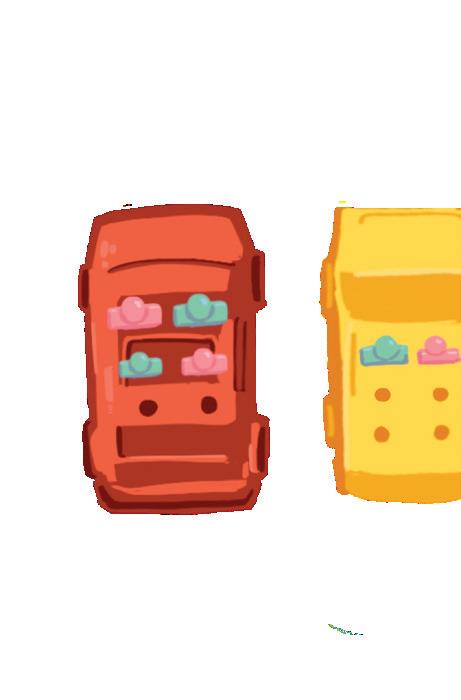



Mr. Bautista,for “actually teaching me math.”
Dr.Beresford,for “answeringmy questionswith patienceandclarity.
Ms.Blackburn,for “beingtheheartand soul of The Oracle.”

Mr. Gleason, for “opening my eyes to an entirely new form of art with graphic design.”
Mr. Gill, “chattingforwith students” and cheering“alwaysmy day.”
Mr.Brassey, for“beingthemost relatable teacher alive.”
Ms.Choi,for“being suchathoughtful, caringand supportiveteacher.”
Mr.Collier,for“being sopassionateabout pscyhology.”
Ms.Firenzi,for“herthoughtful, empathicapproachestoissues rangingfromglobalconfictto teacherhousing.”
Mr.Friedland,for“always bringingenergyintothe classroom.”
Ms. Garcia, “my queen.”
Ms. Granlund-Moyer for “putting up with all of shenanigans.”GRT’s
Mr. Hahn, for his “funny stories and comforting words.”
Ms.Congress,for “beingaloving,caring andinspiringteacher.”
Mr. Deggeller, for “teaching calculus in a really intuitive way that I liked.”
Ms.Durquet,for “beingsuchan amazingteacherand freespirit”andfor “teachingmesomuch aboutphotography andlifeingeneral.”
Mr. Dunlap, for “striving to make an amazing community for his students.”
Mr. Redfeld, for his “ever-present enthusiasm and wonderful stories.”
Ms.KristenOwen, because“your classroomwasalways asafespacefor everystudenttobe themselves.”
Mr. Summers, for “being there for all four years.”
Ms.Hall,forbeing“literally so cool.”
Mr.Hernandez,whose“flmlit class was the most fun I’ve had in a classroom.”
interestMs.Holdener,for“fuelingmyinliteratureandencouragingmetokeepwriting.”
Ms.Howard,for“making historyanenjoyable experience.”
Mr. Johanson, “whom I visited countless times.”
Mr.O’Connell,for “steppingupmy appreciationfor learningandalovefor STEM.”
Mr.Paley,for“making computerscienceclass interesting.”
Ms.JanetOwen,for “beingmyrockthrough everythingI’vegone through.”
Mr.Lyons,for“being effortlesslyfunny.”
Ms.Merchant,for “beingacaring teacher.”
Ms.Norberg,for “beingsowonderful.”
Mr.Kitada,for “alwaysmakingme feel seen.”
Ms. Kaci, for being “the warmest, patientest, listeningest, noticingest, bestest teacher ever.”
Ms.Weymouth,for “beinganabsolute girlboss.”
Mr.Lang,for“being sopatientwithme throughoutthewhole fnancialaspectof applyingforcollege.”
Ms.Zizmor,for“helpingme discovermyinterestin chemistry.”
Source: Survey sent out to Gunn seniors by

Lewis and Clark UOregon
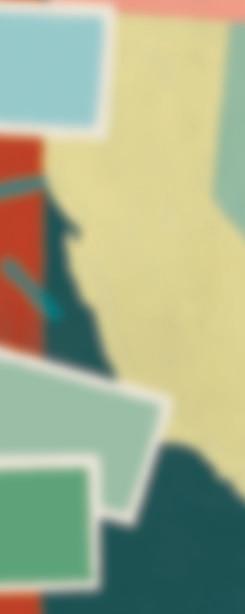
Cal Poly Humboldt
Cal Poly SLO
Chapman
Claremont McKenna
College of San Mateo
Foothill
Loyola Marymount
Occidental
Saint Mary’s
San Francisco State
San Jose State
Santa Clara
Stanford
UC Berkeley
UC Davis
UC Irvine
UC Los Angeles
UC Riverside
UC San Diego
UC Santa Barbara
USC
Arizona State
Glasgow University
Trinity College Dublin
University of British Columbia
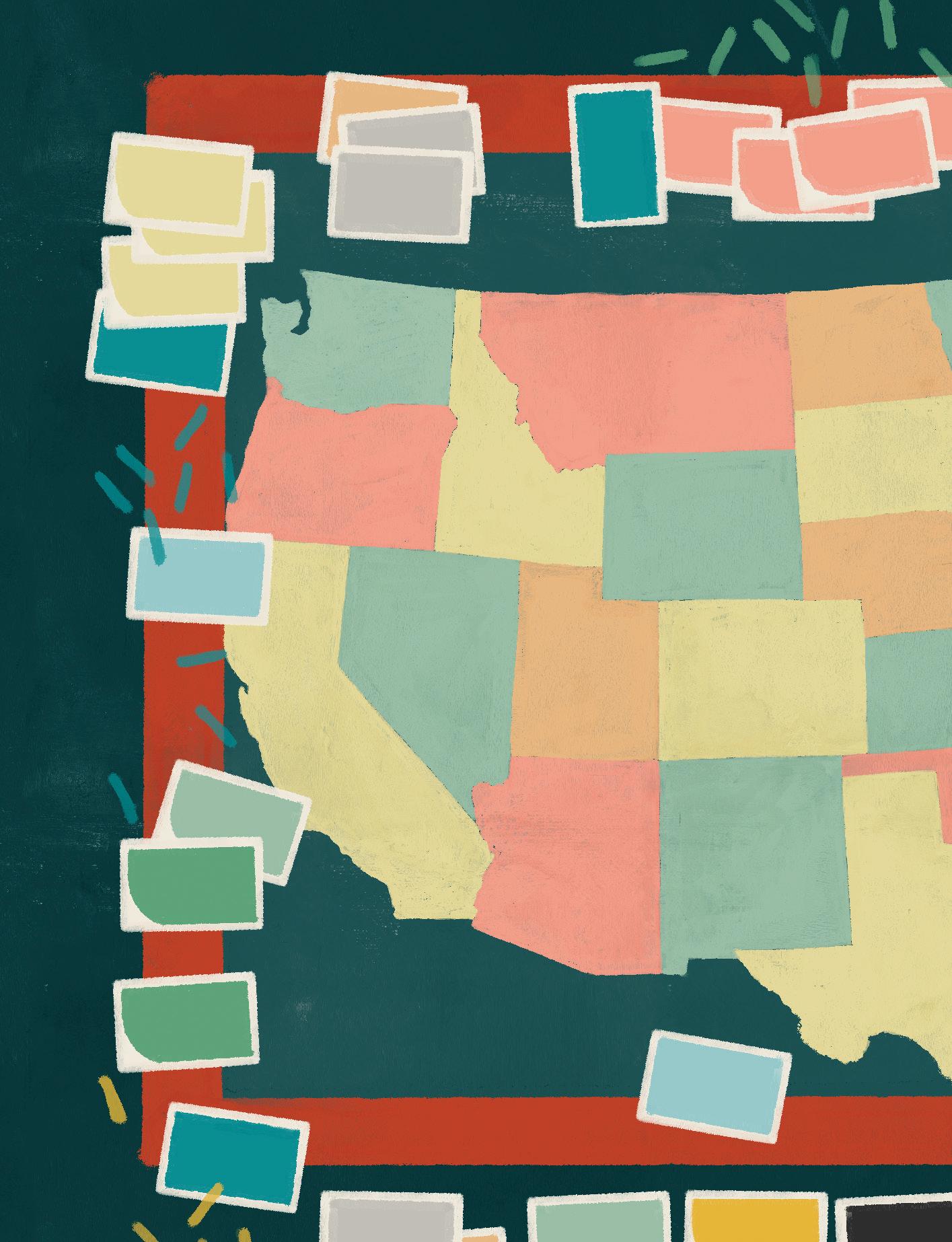
Colorado College CU Boulder


Case Western Reserve Purdue
Northwestern UChicago UIUC West Virginia
Washington University
University of Vermont


Barnard
Columbia
Cornell
NYU RPI
Sarah Lawrence
Skidmore
Syracuse
Carnegie Mellon Haverford UPenn

Berklee
Harvard MIT

Northeastern Tufts
UConn
Wesleyan

Brown RISD


University of Maryland

George Washington Georgetown
Emory Georgia Tech
Source: Survey sent out to Gunn seniors by The Oracle with 129 responses.
